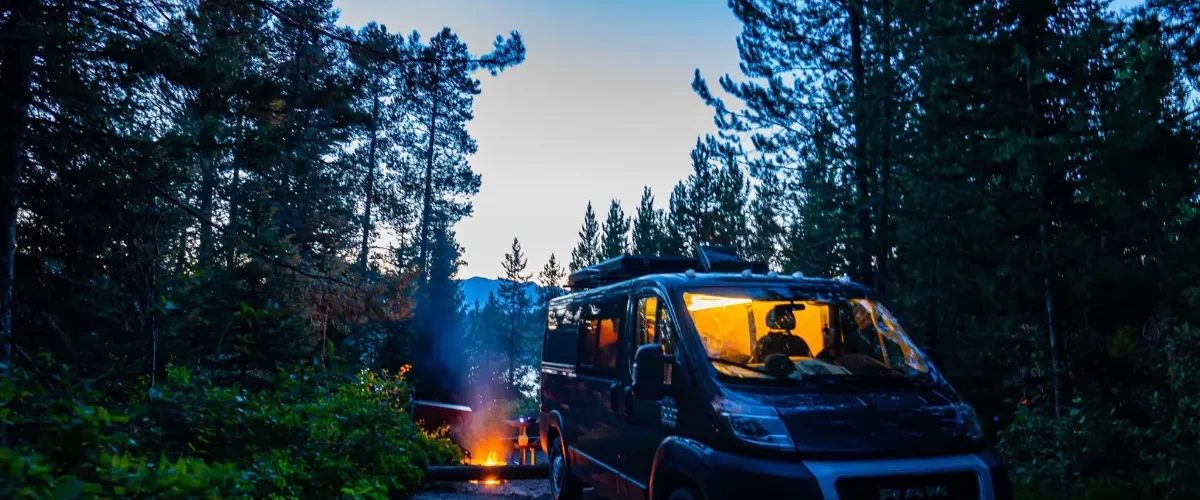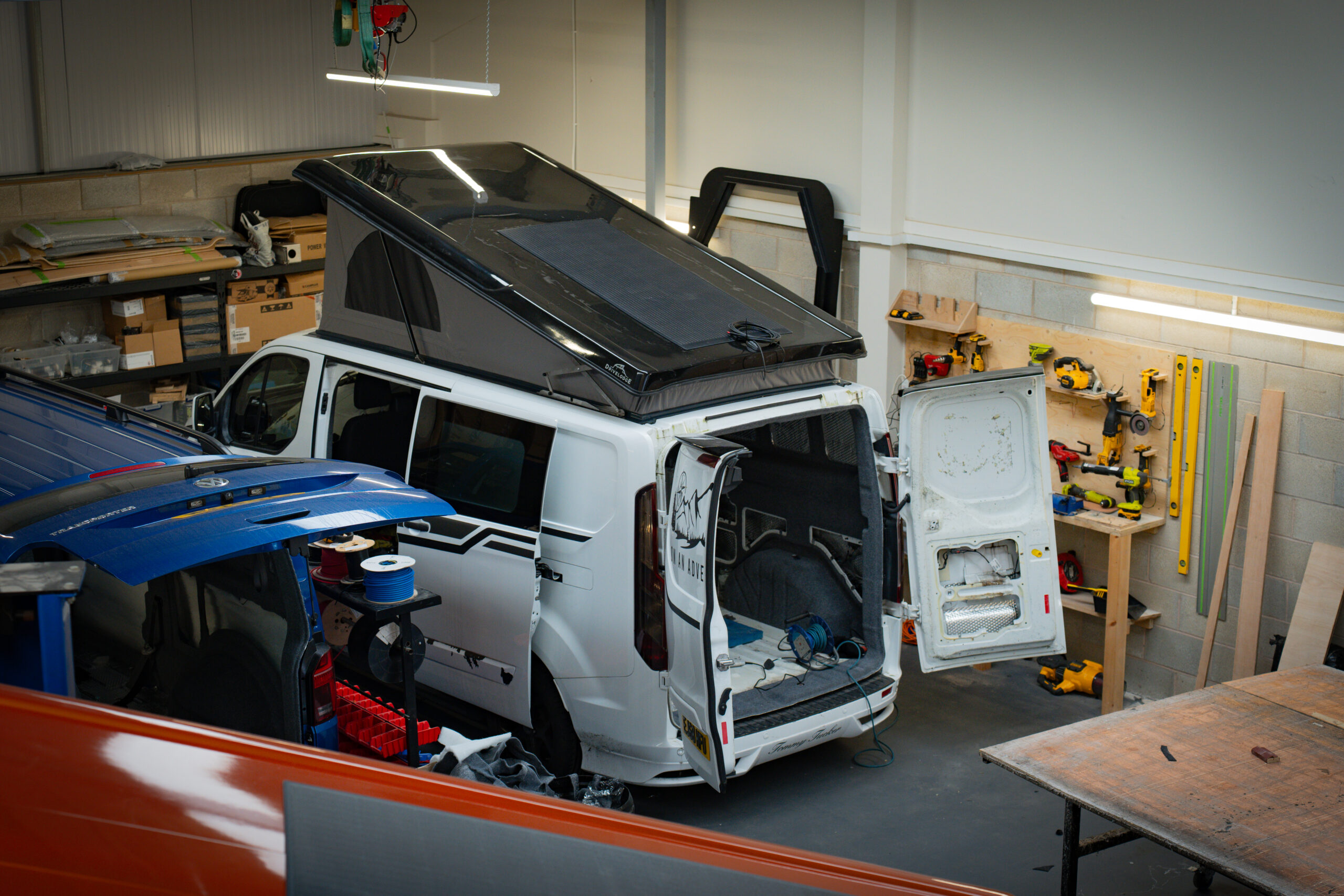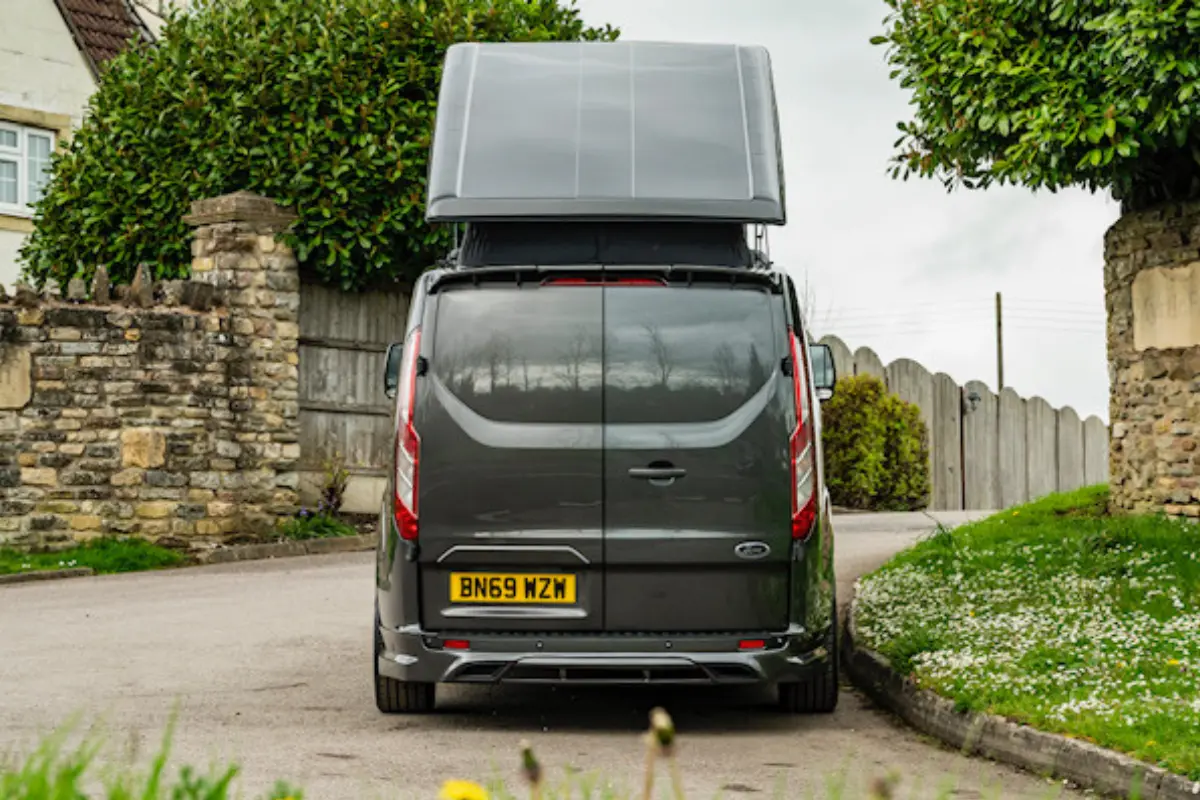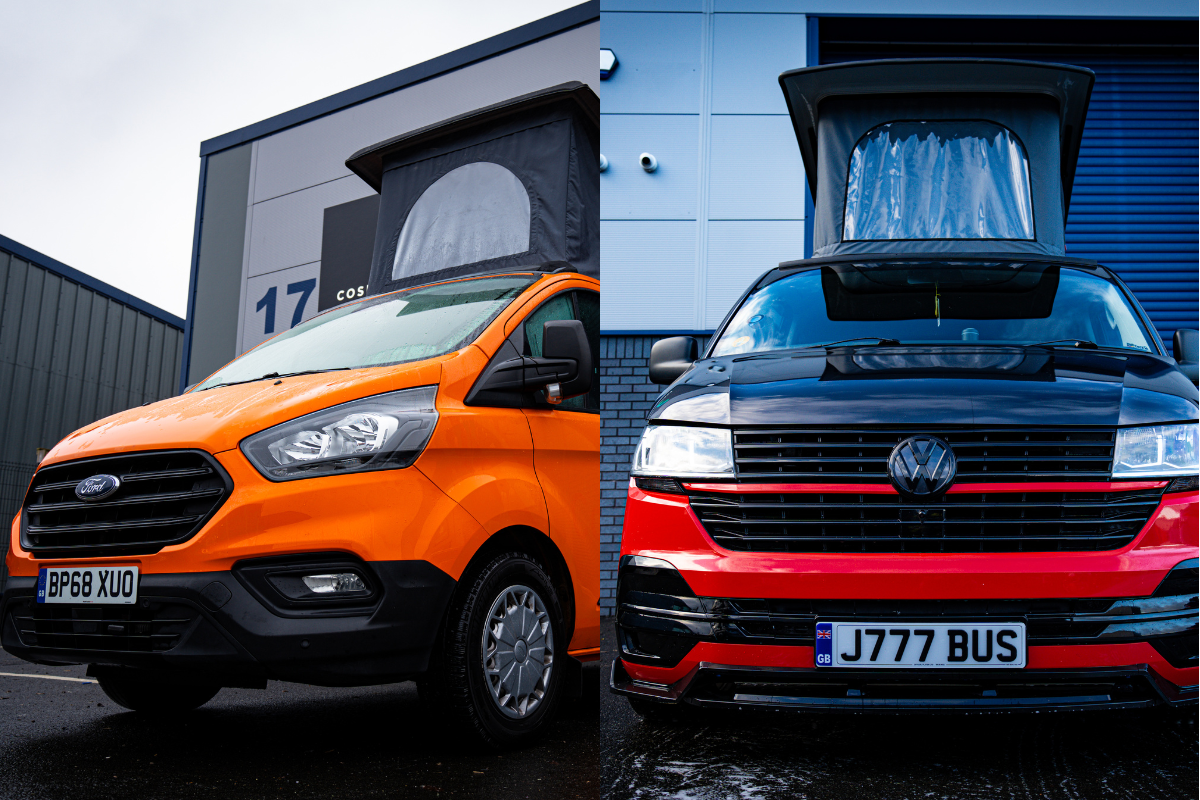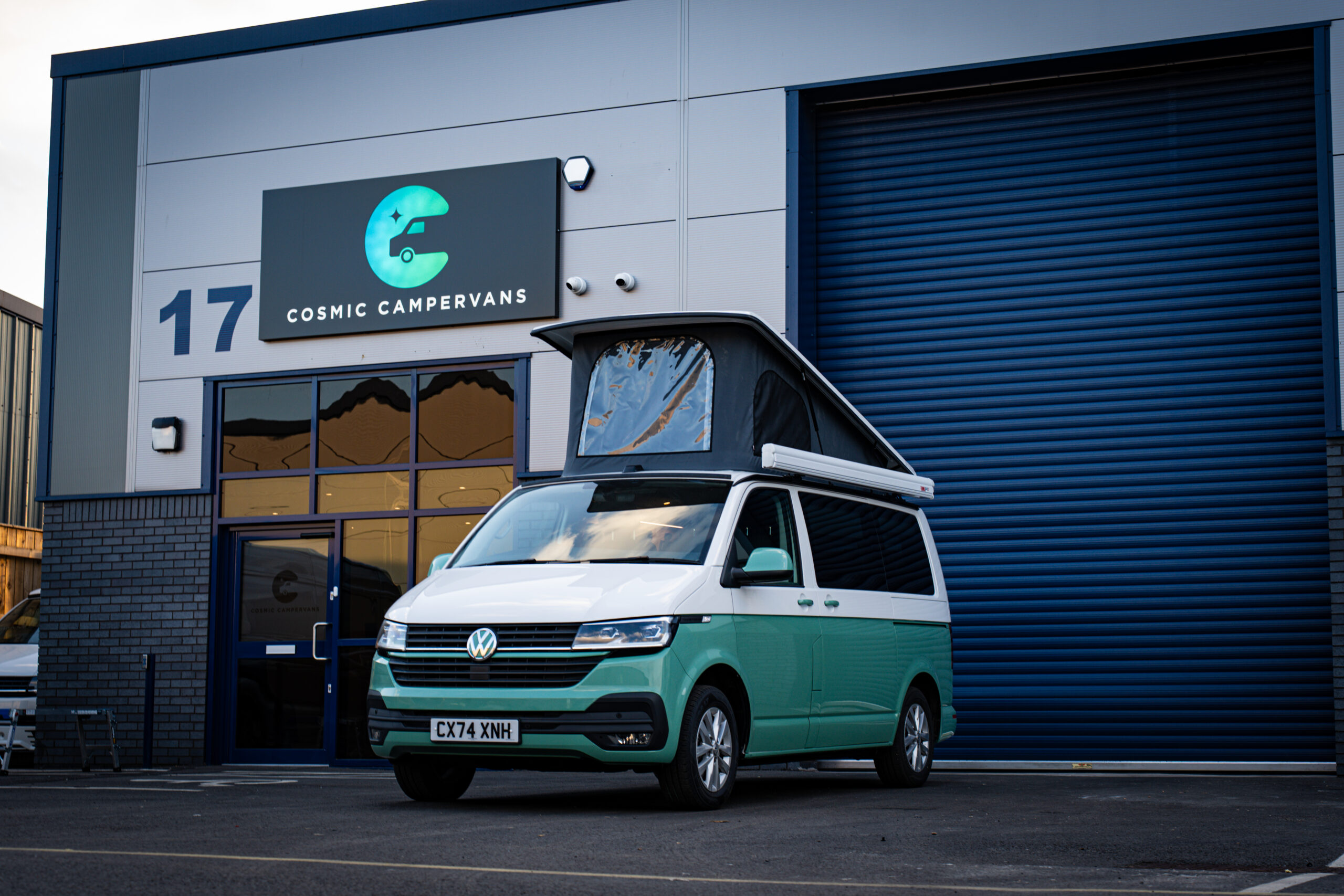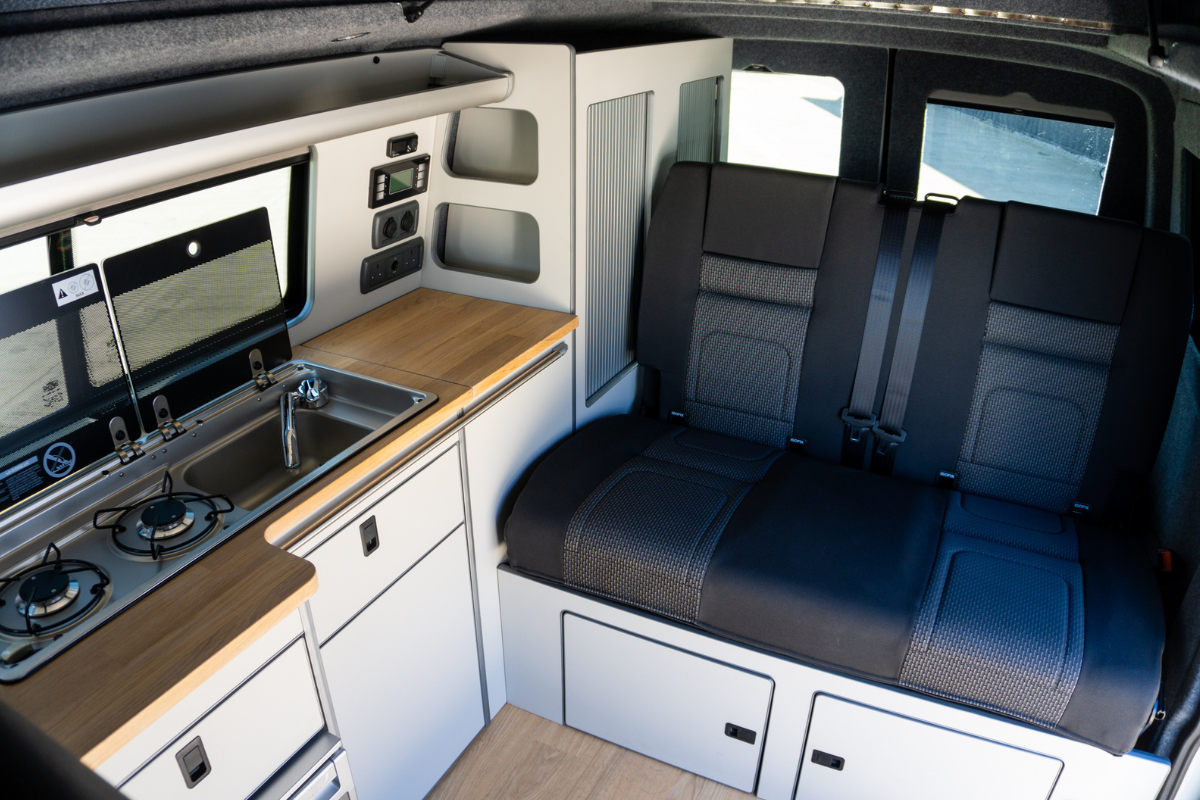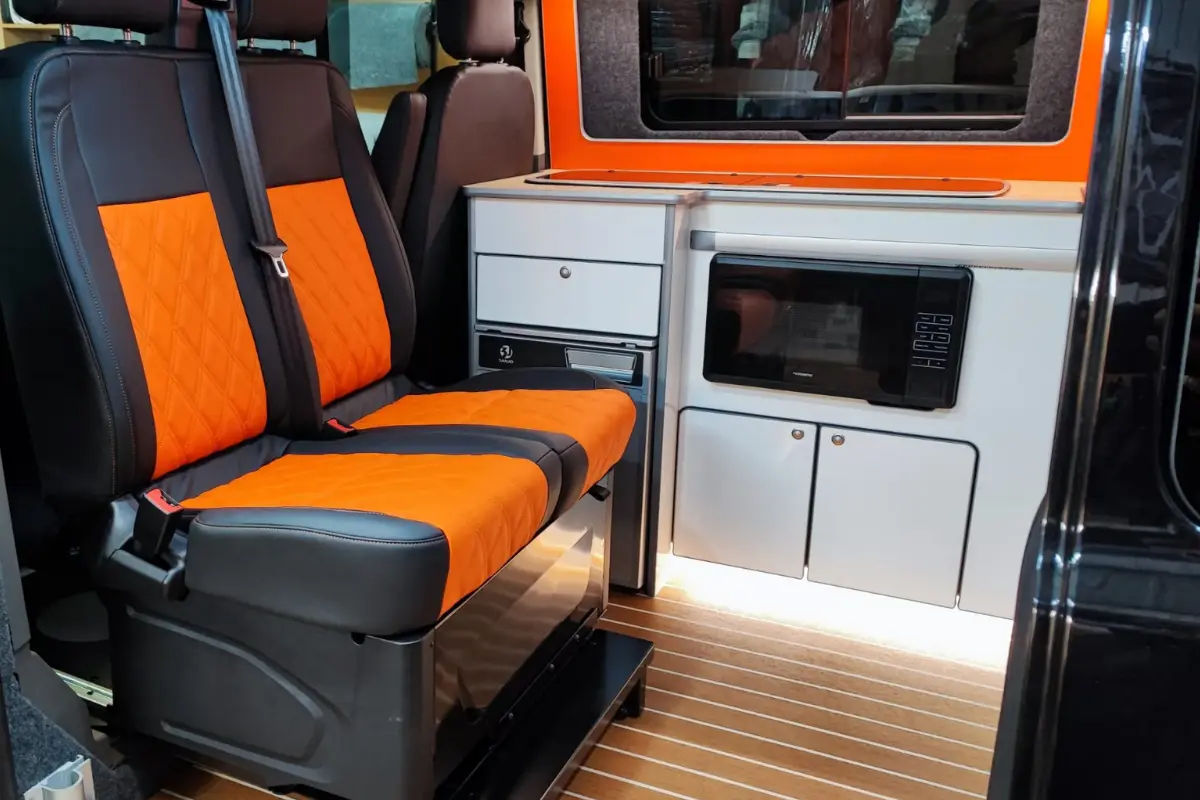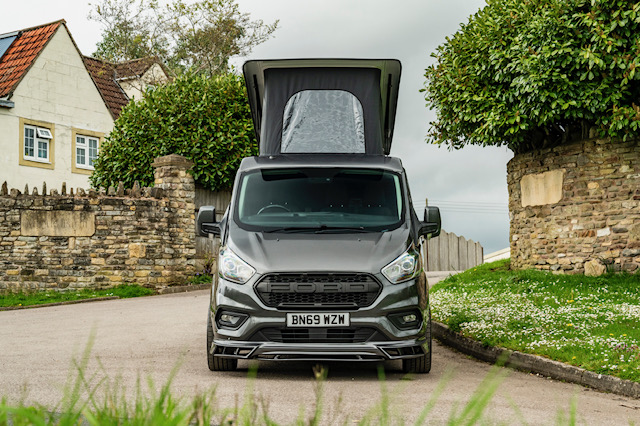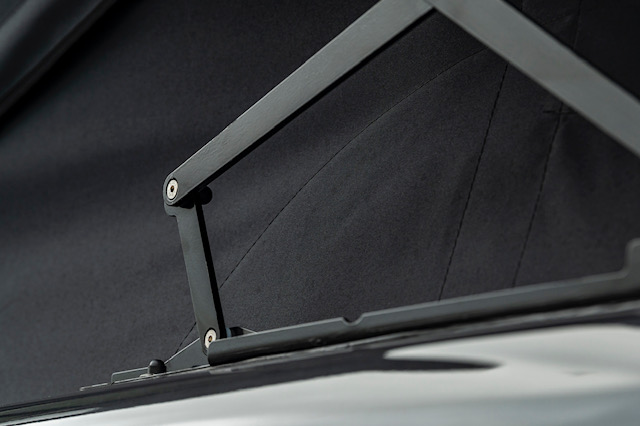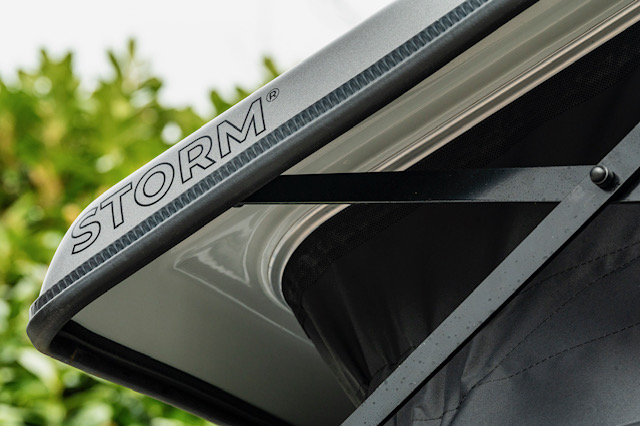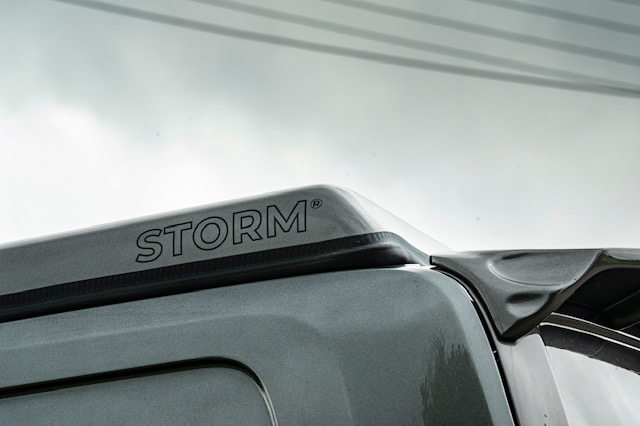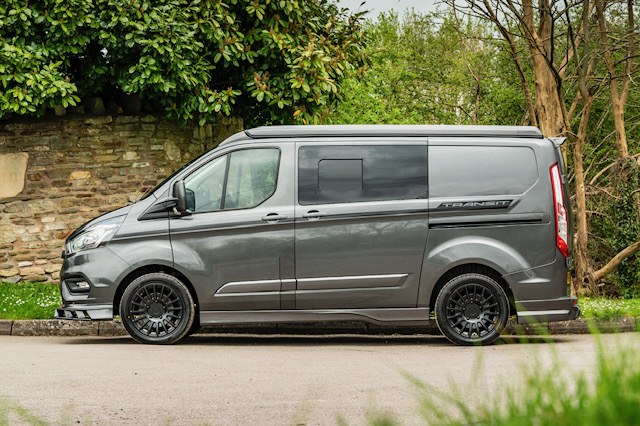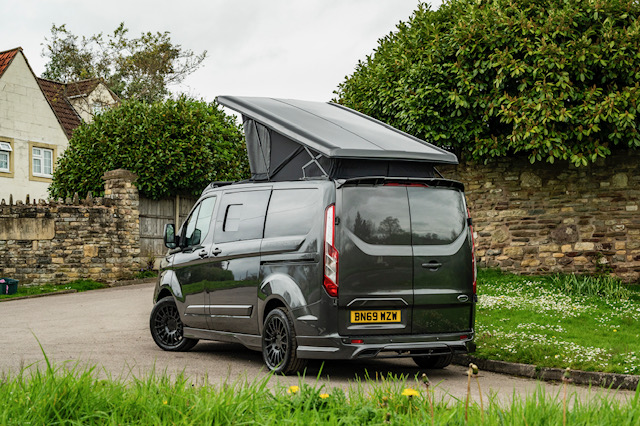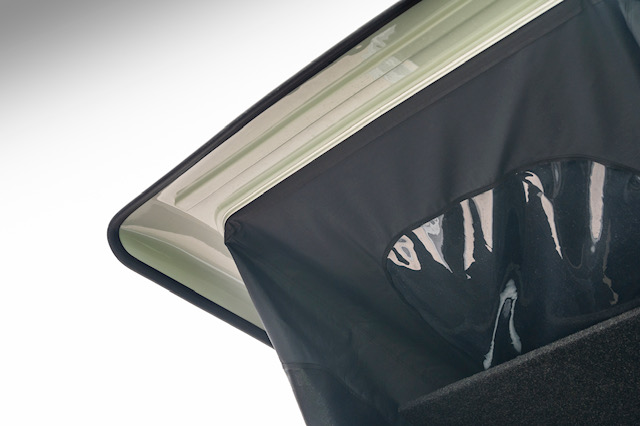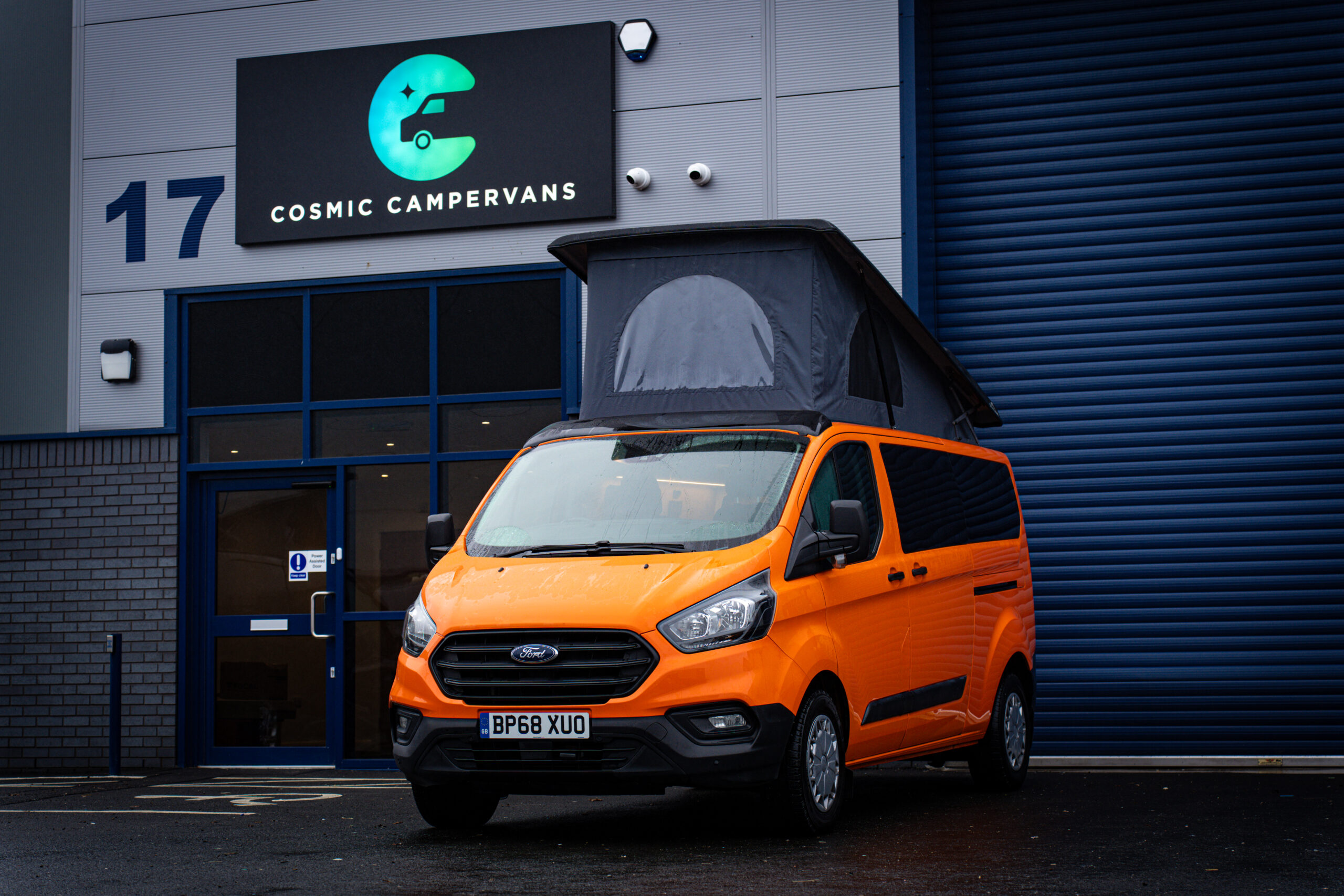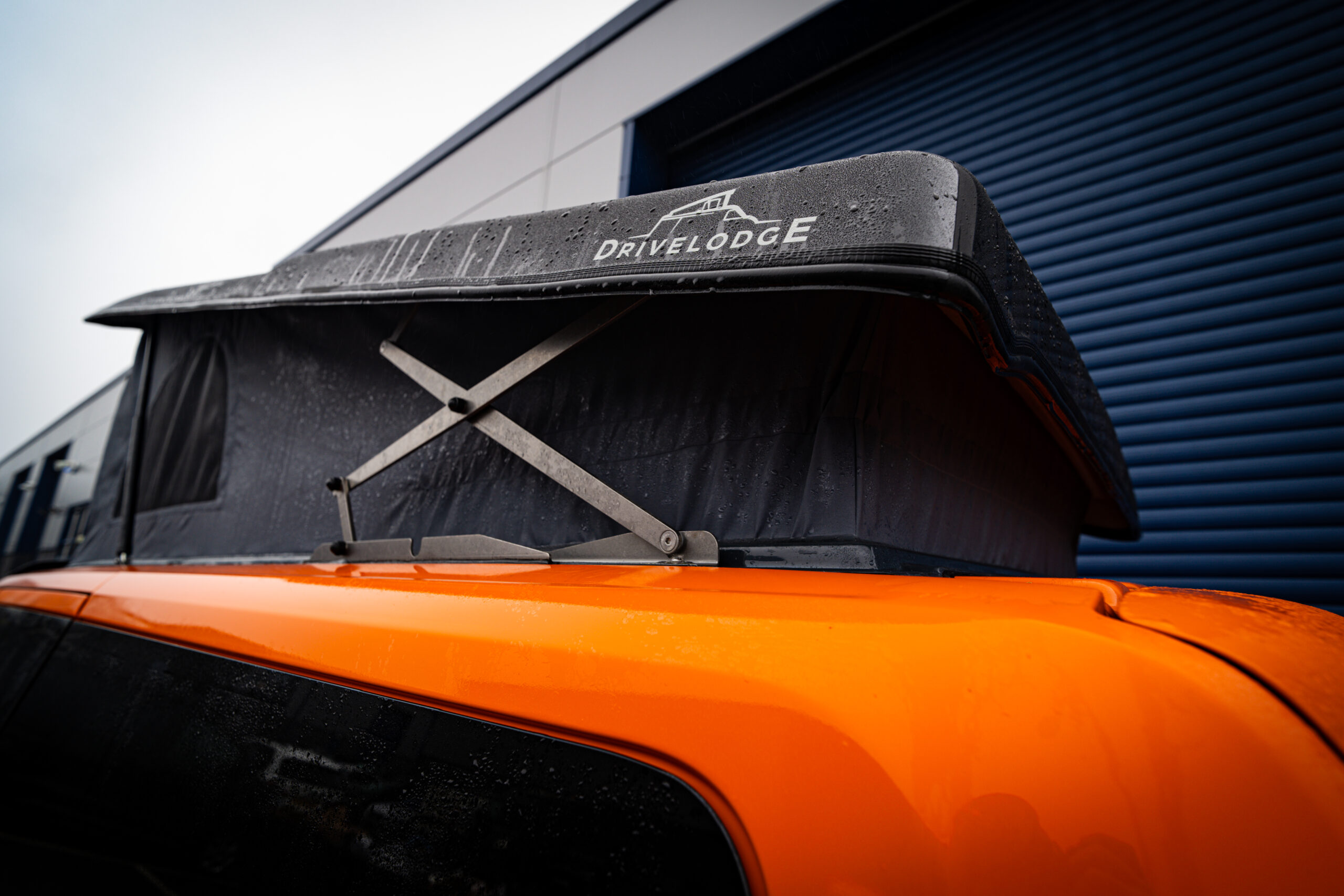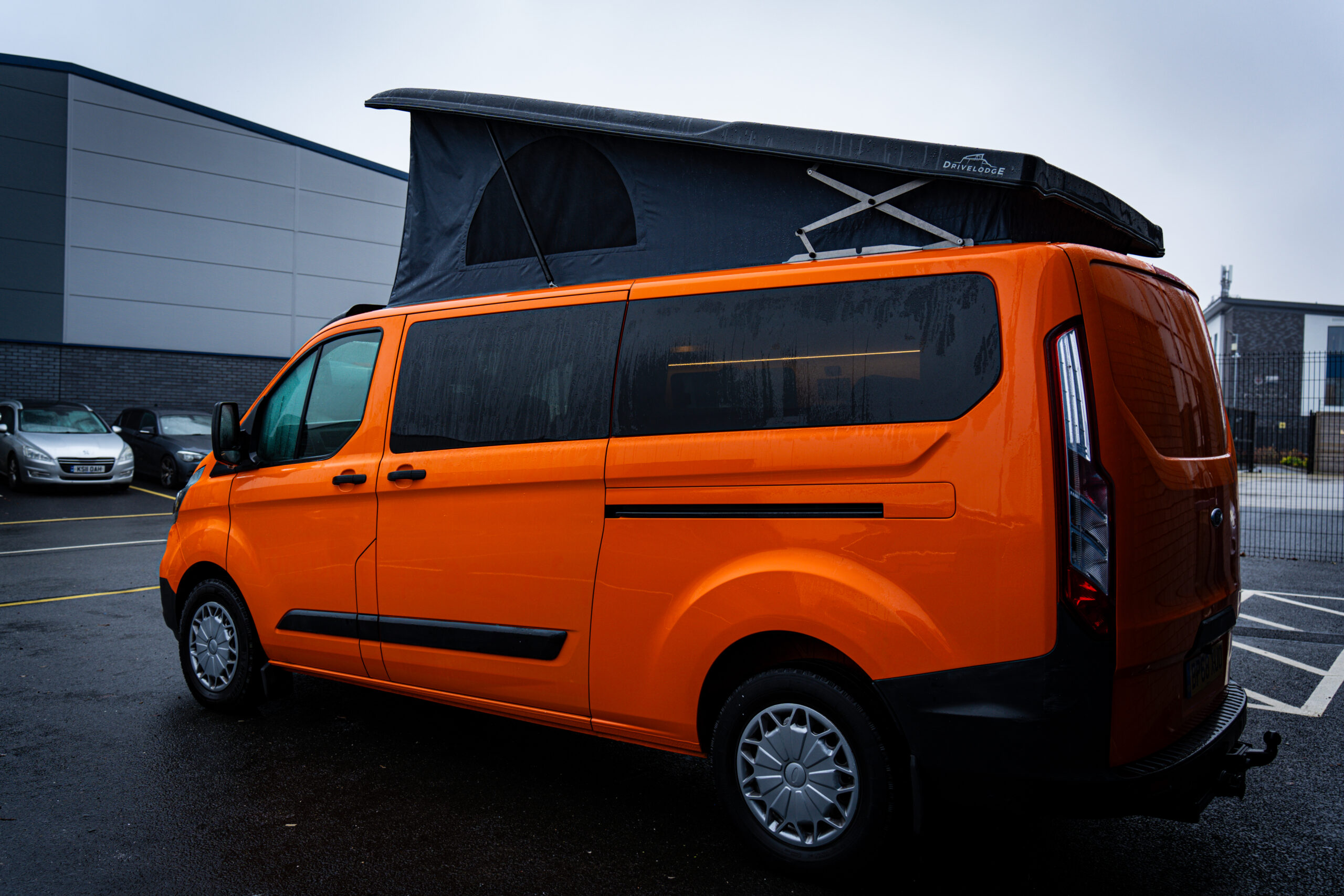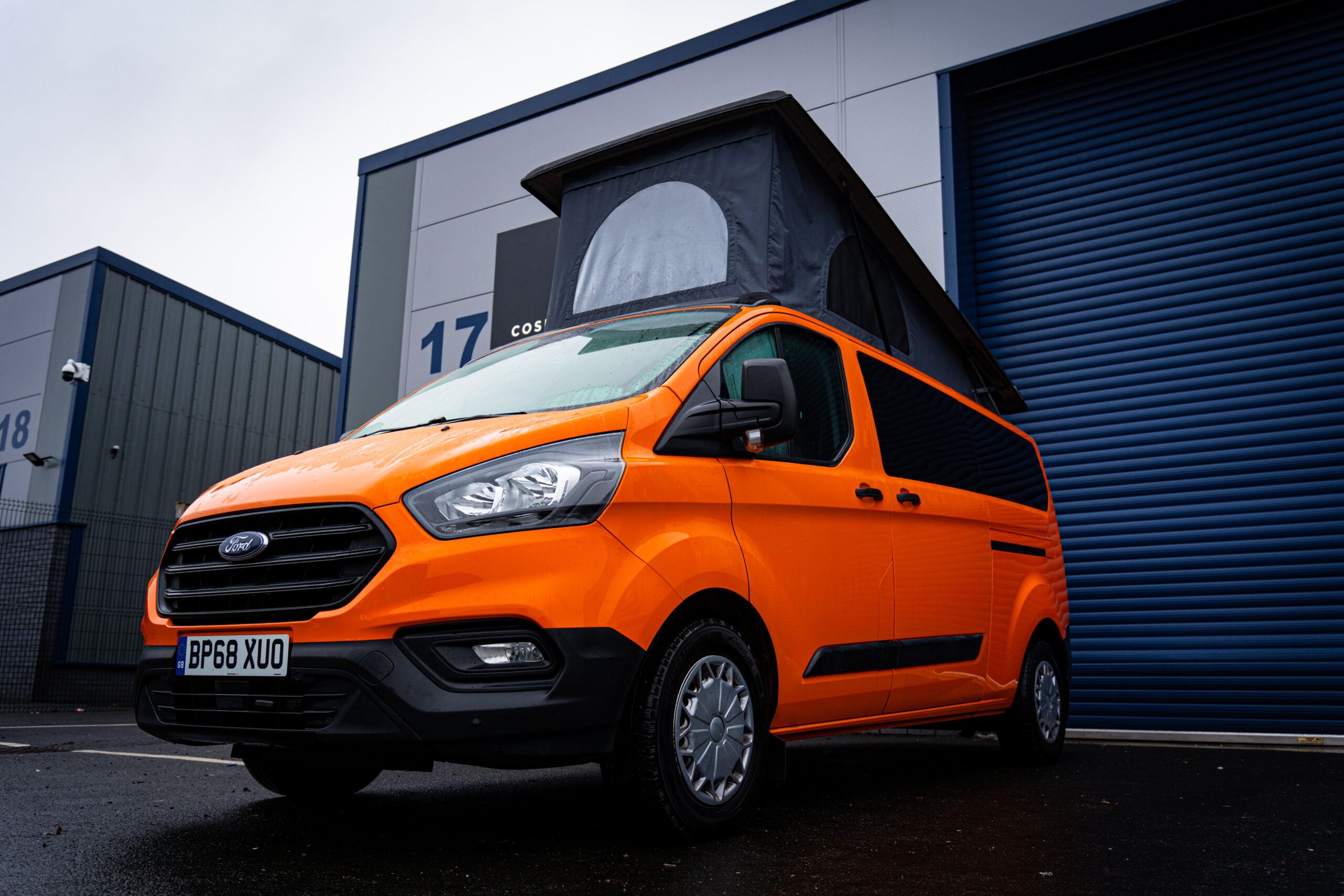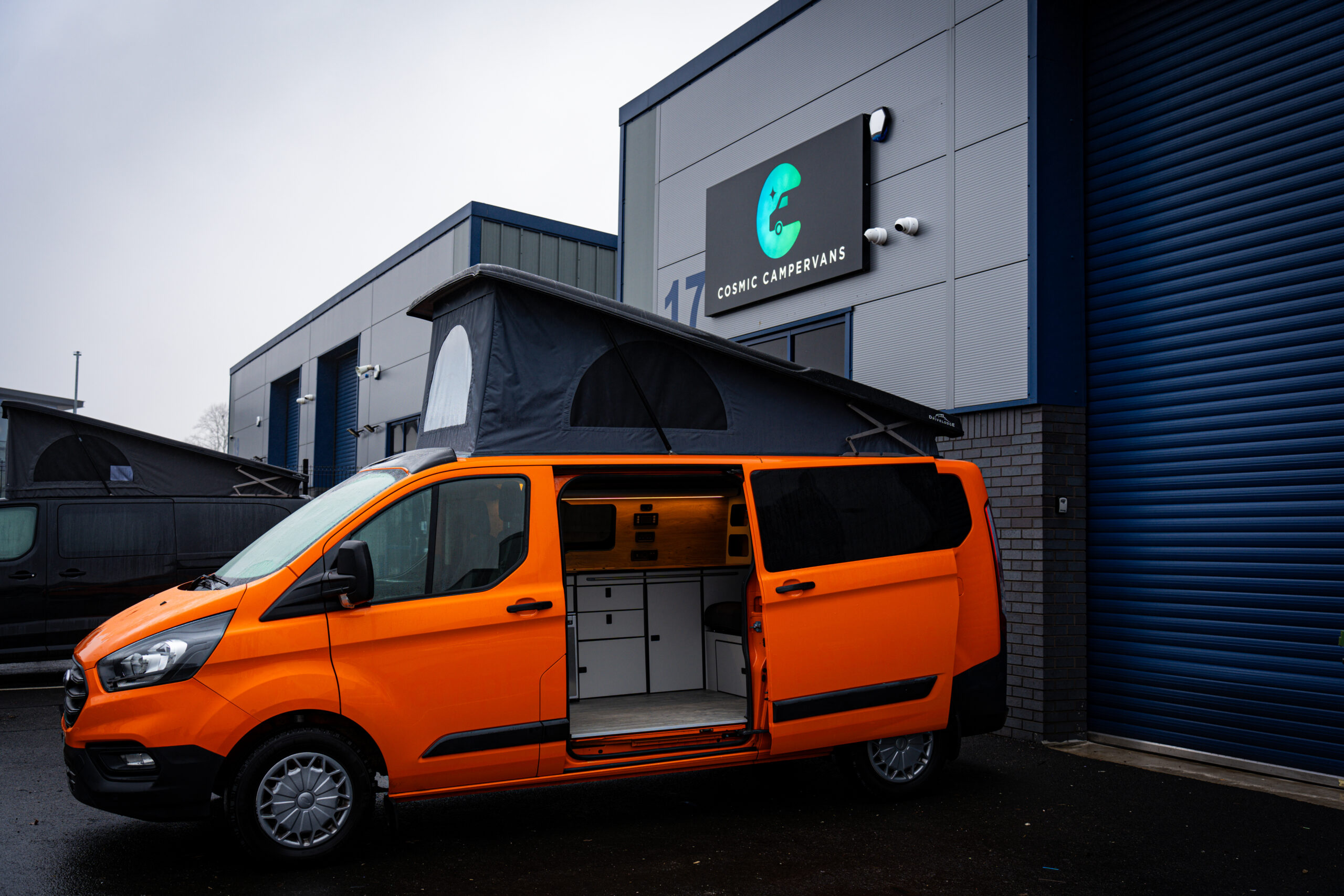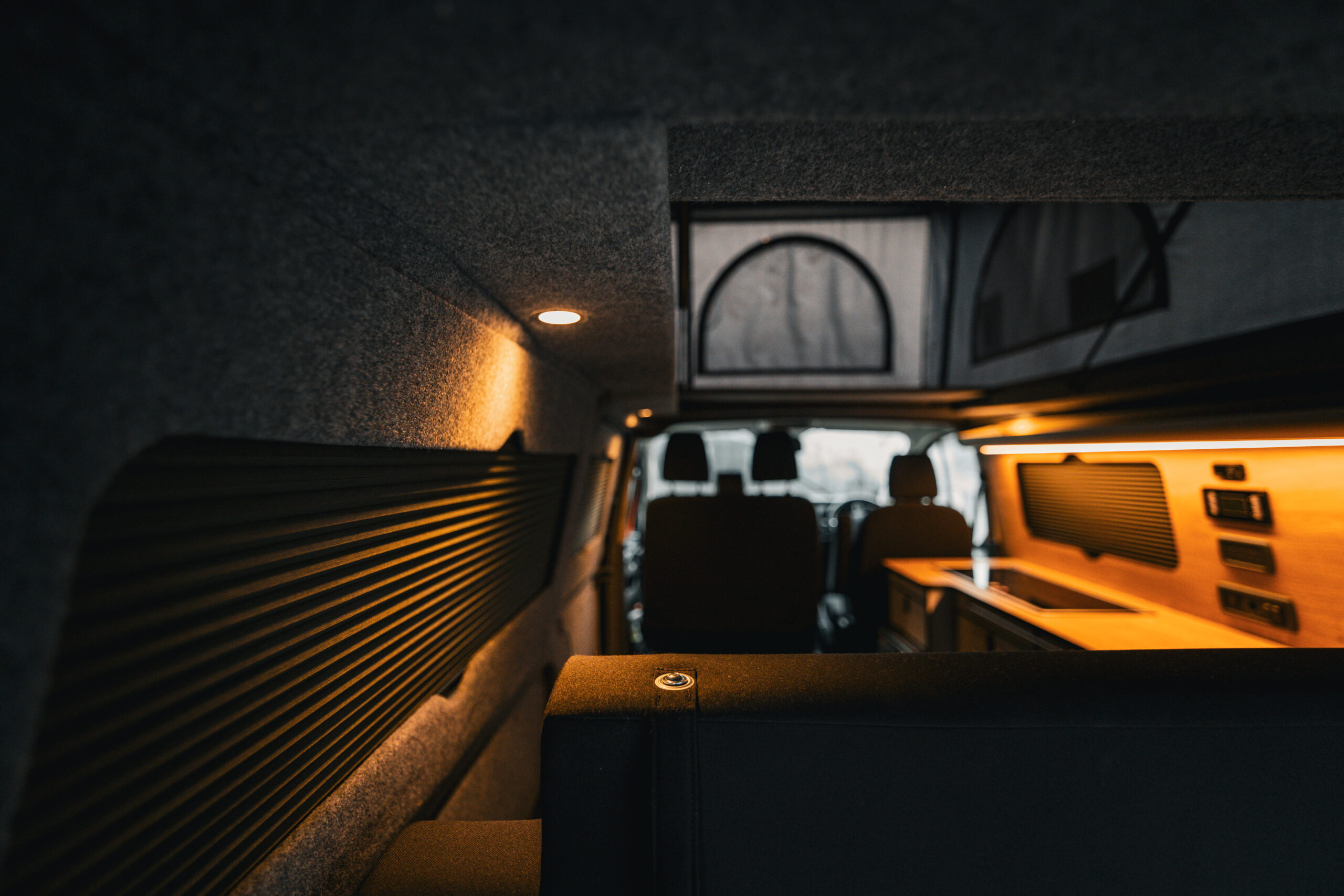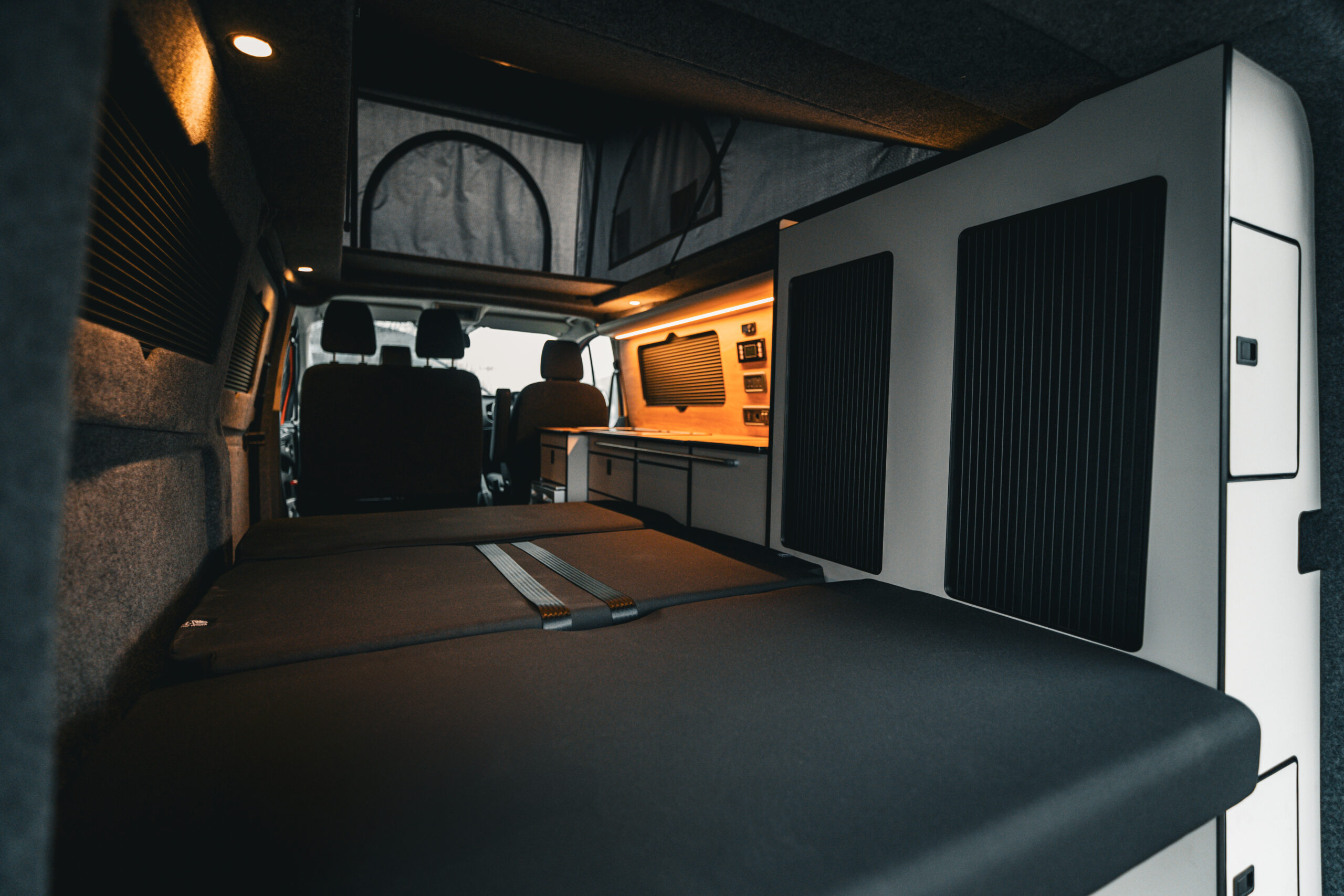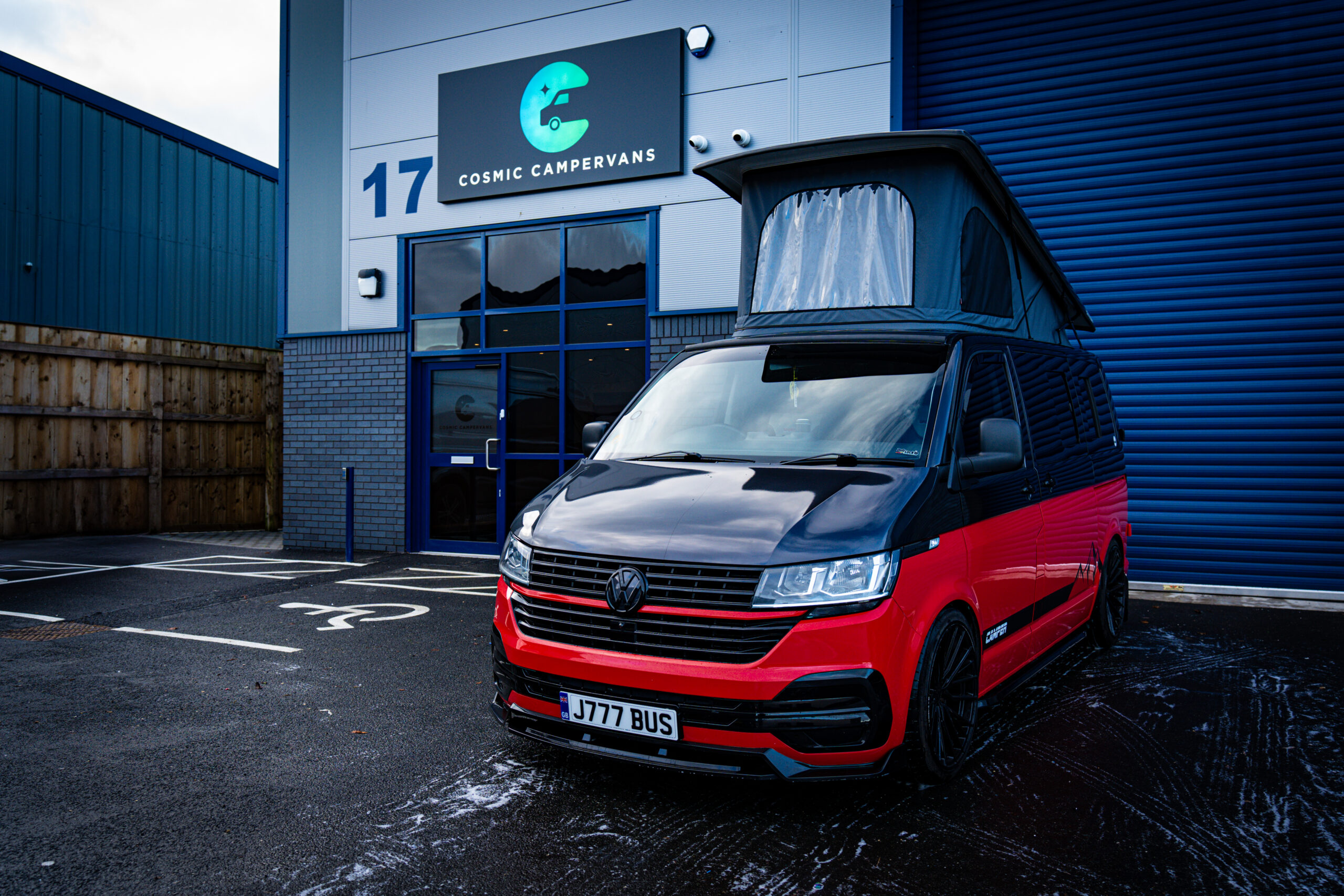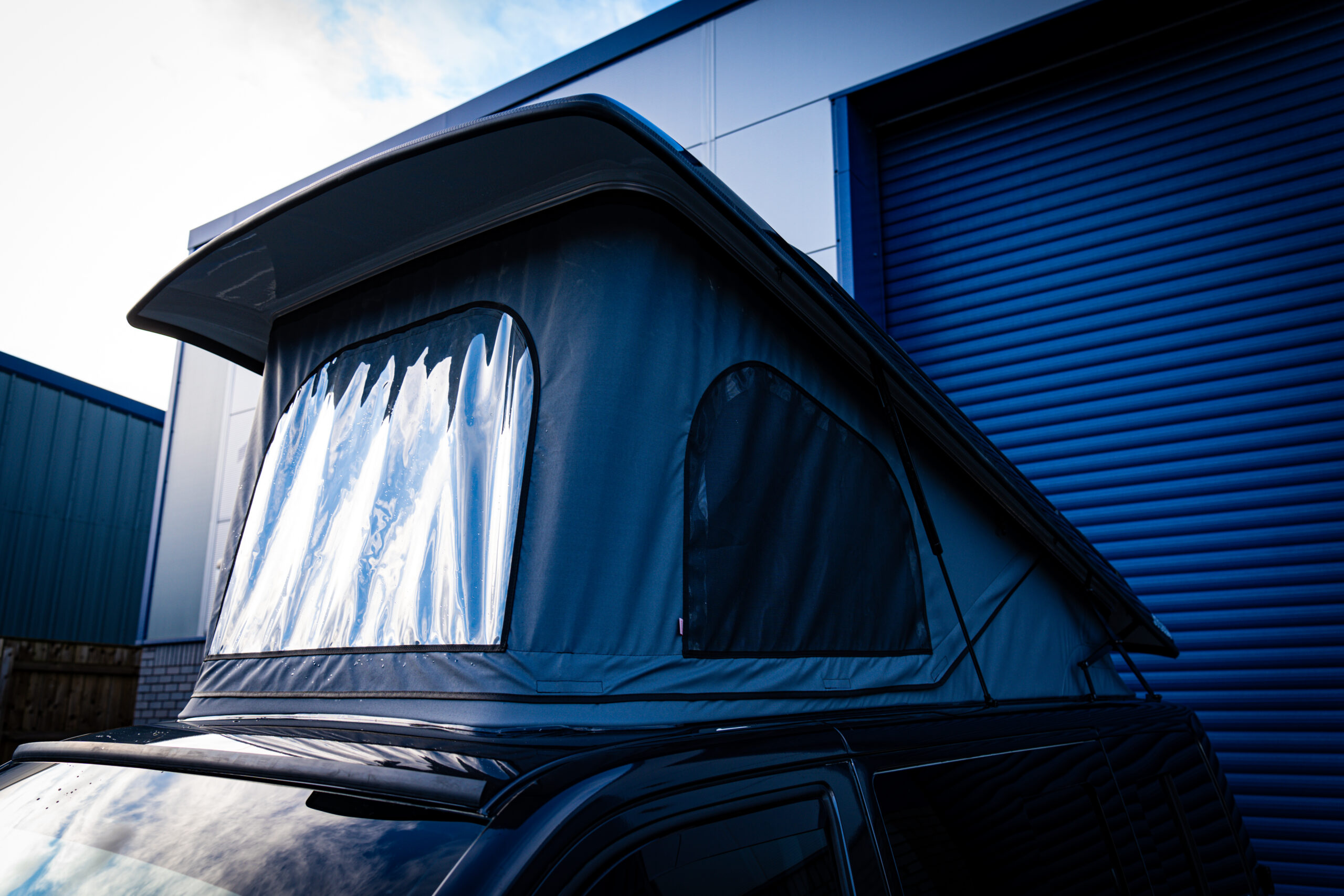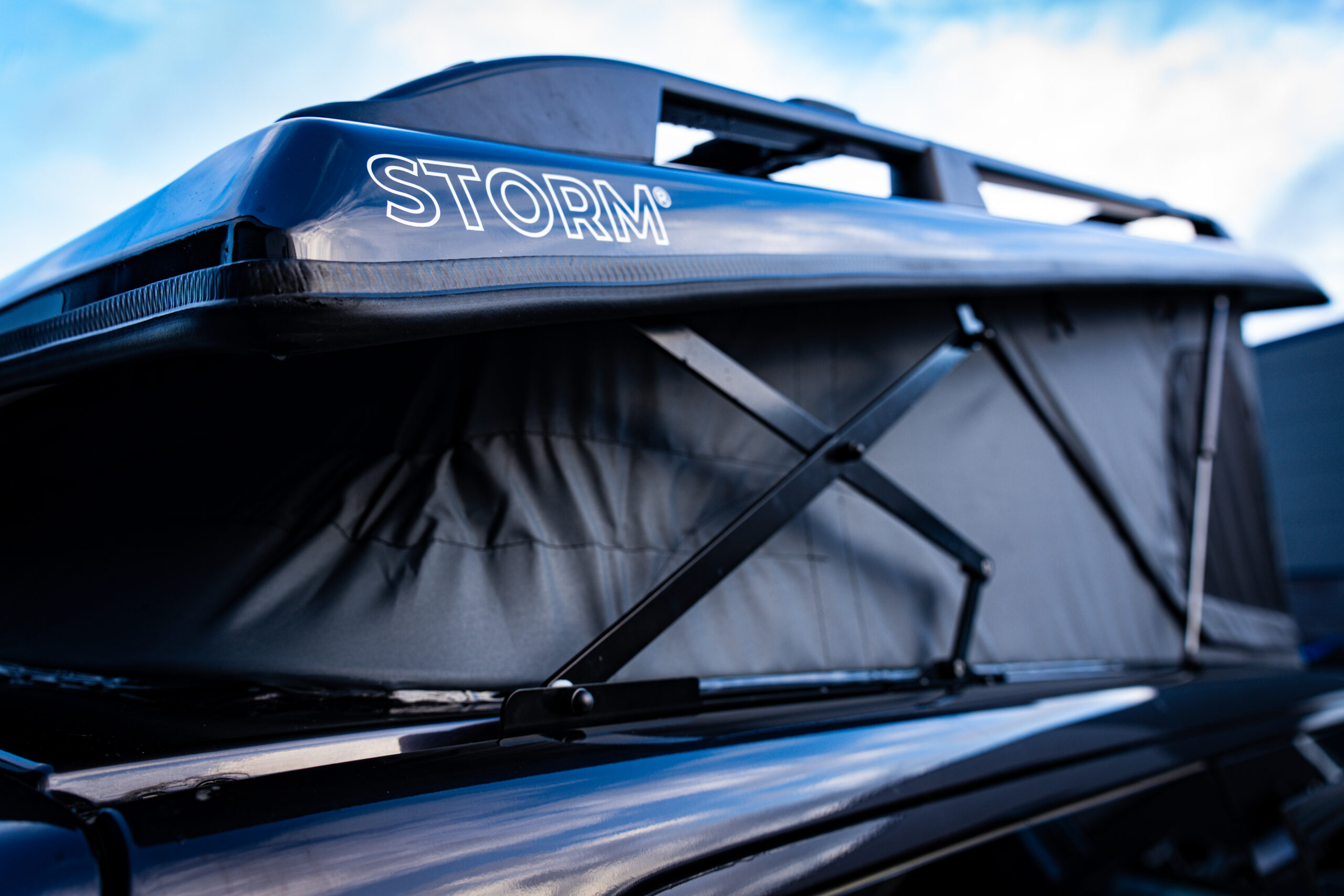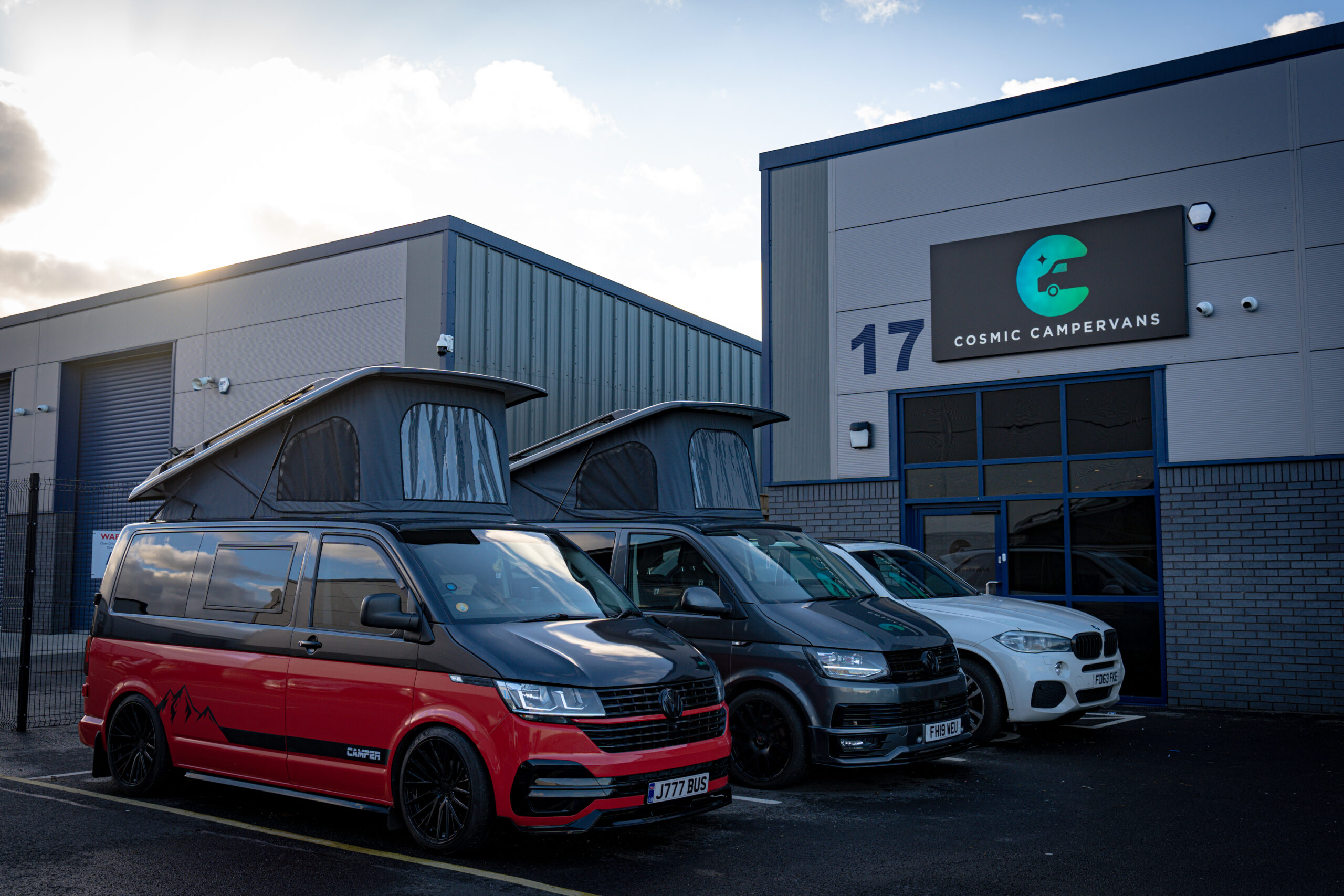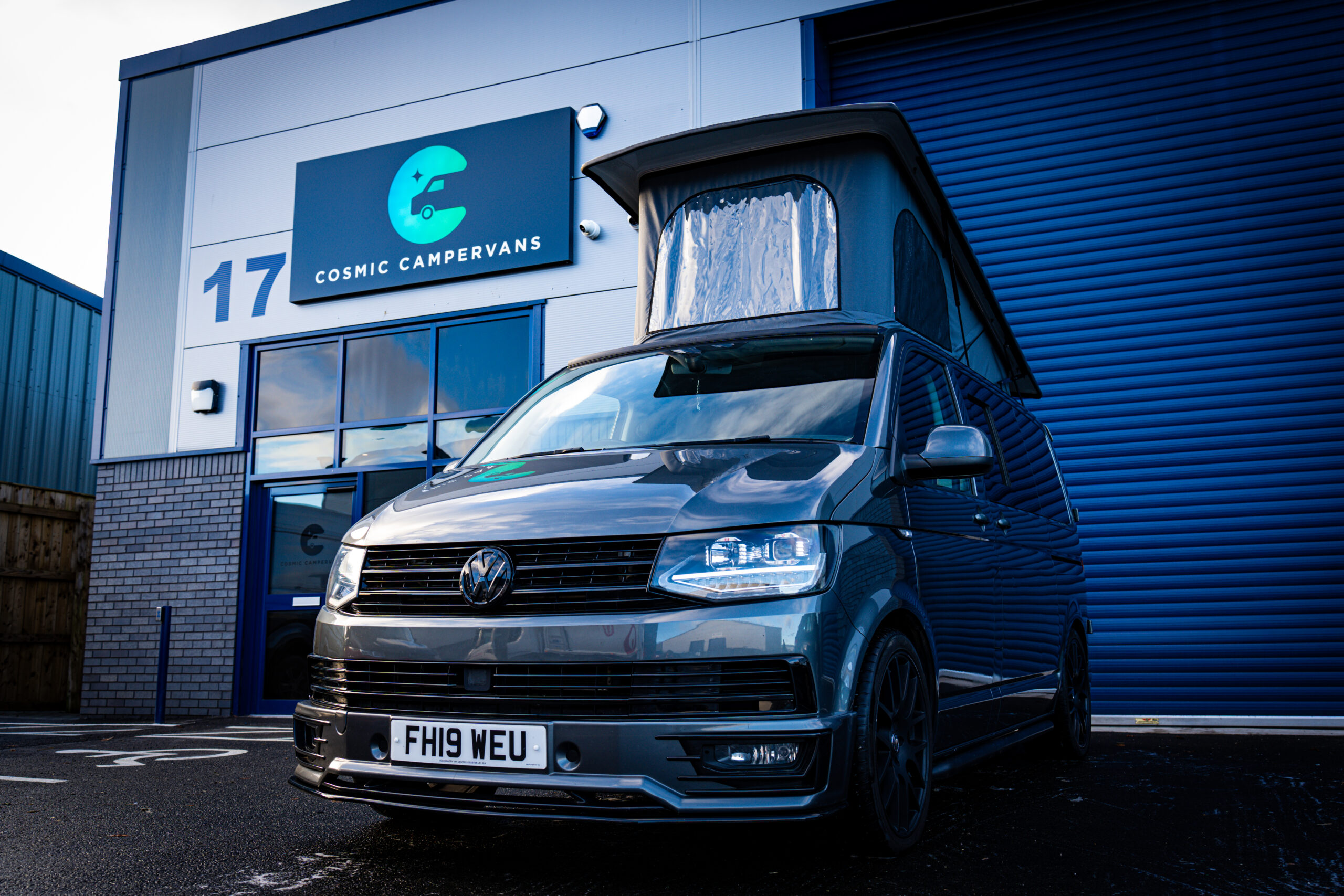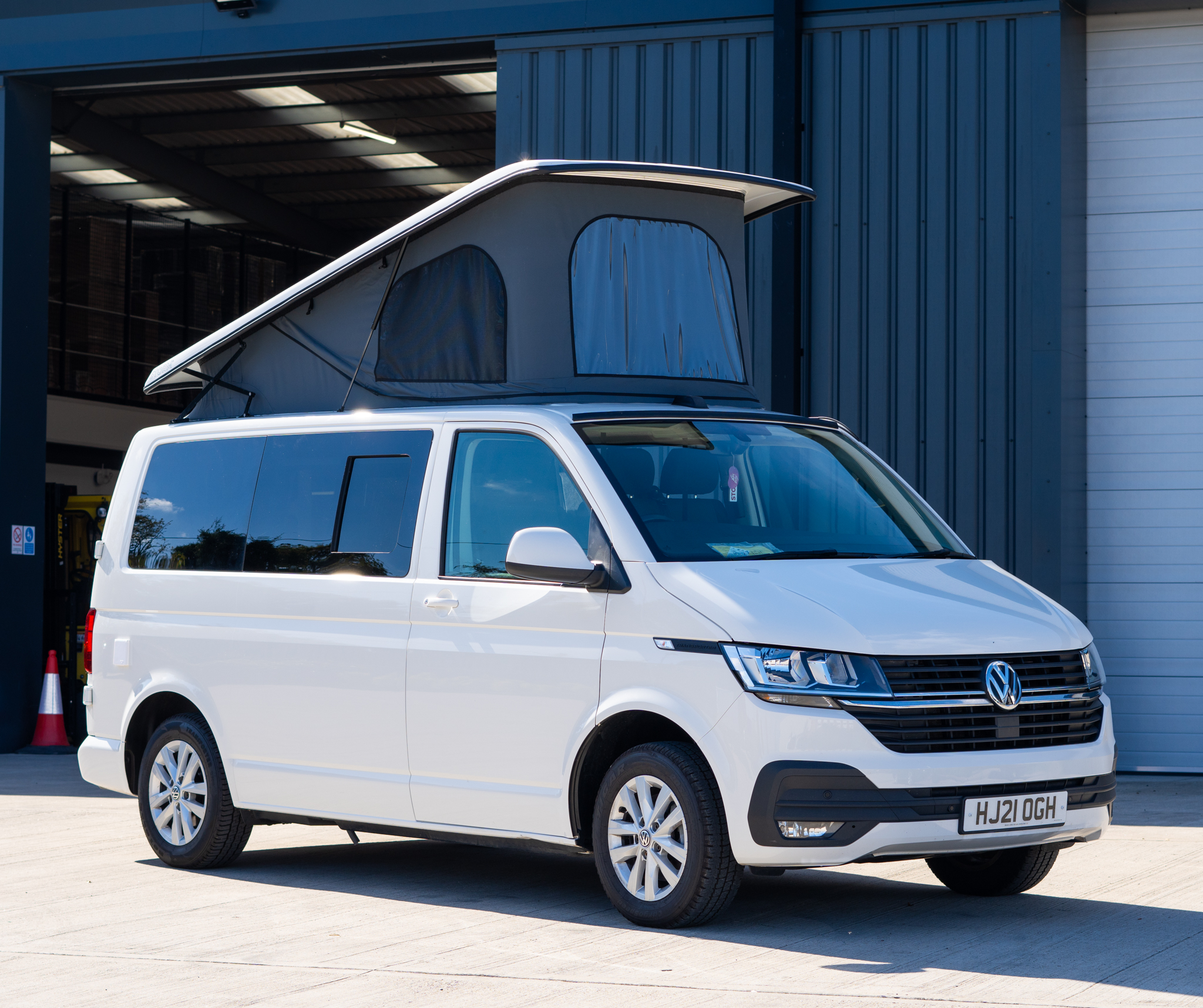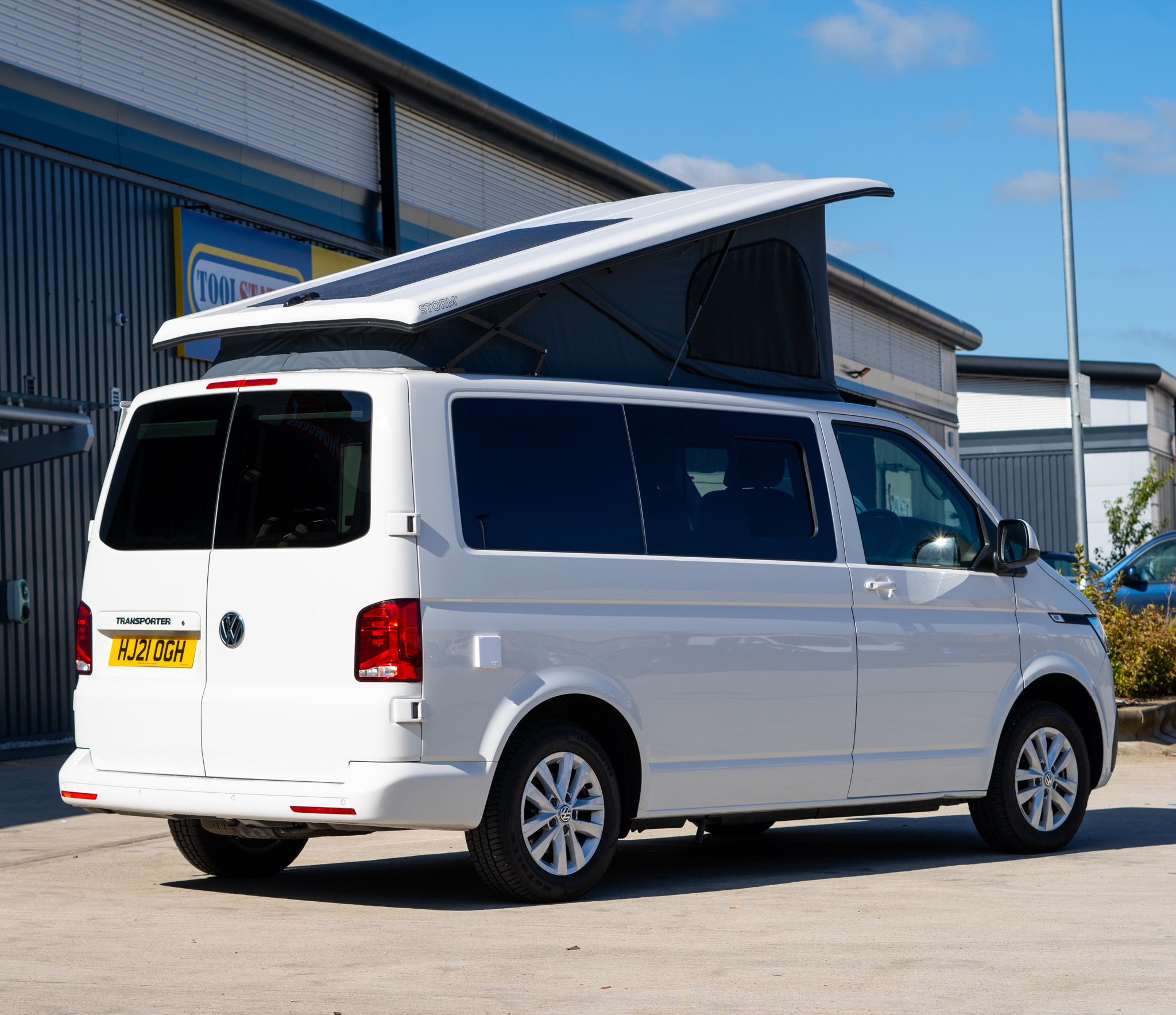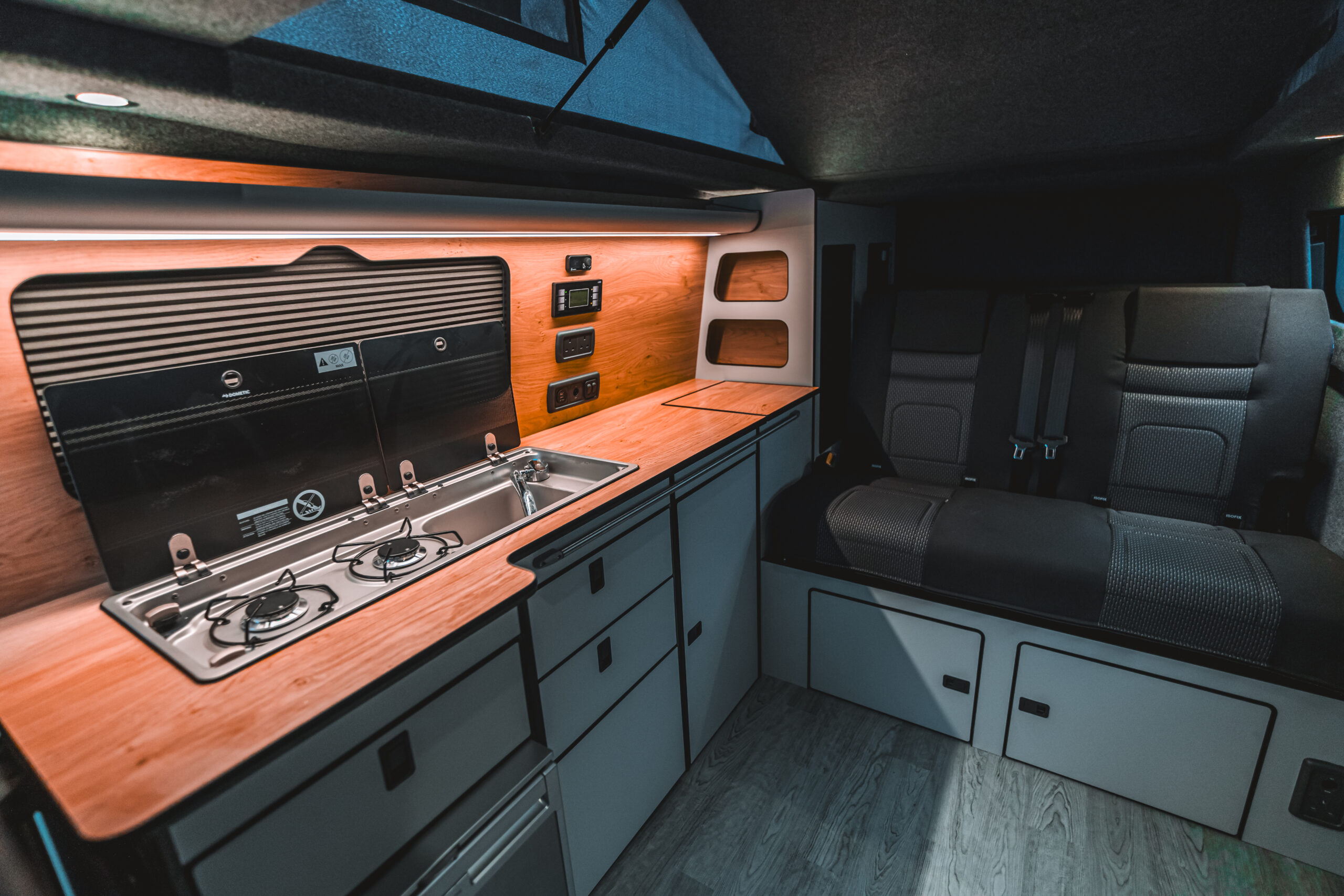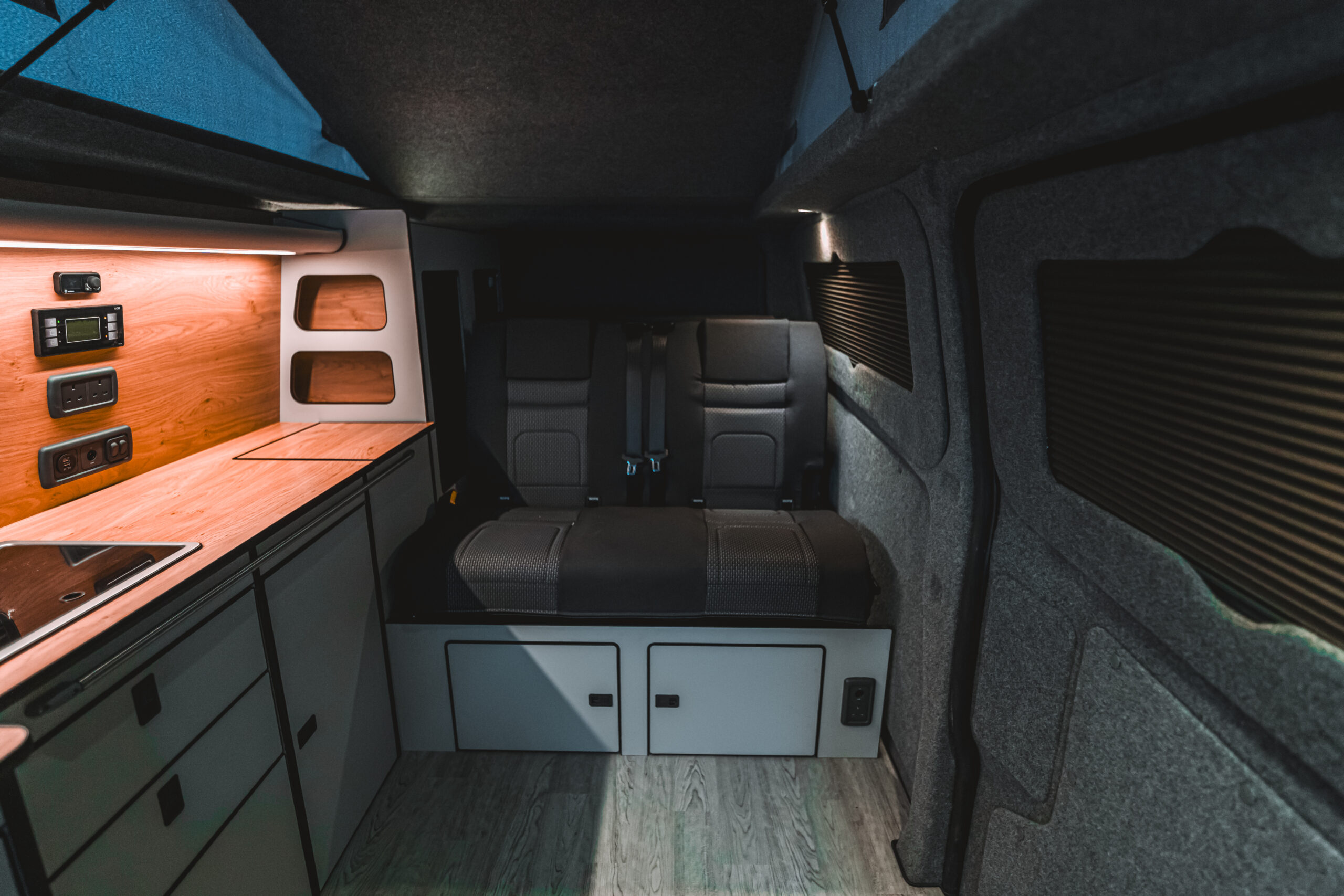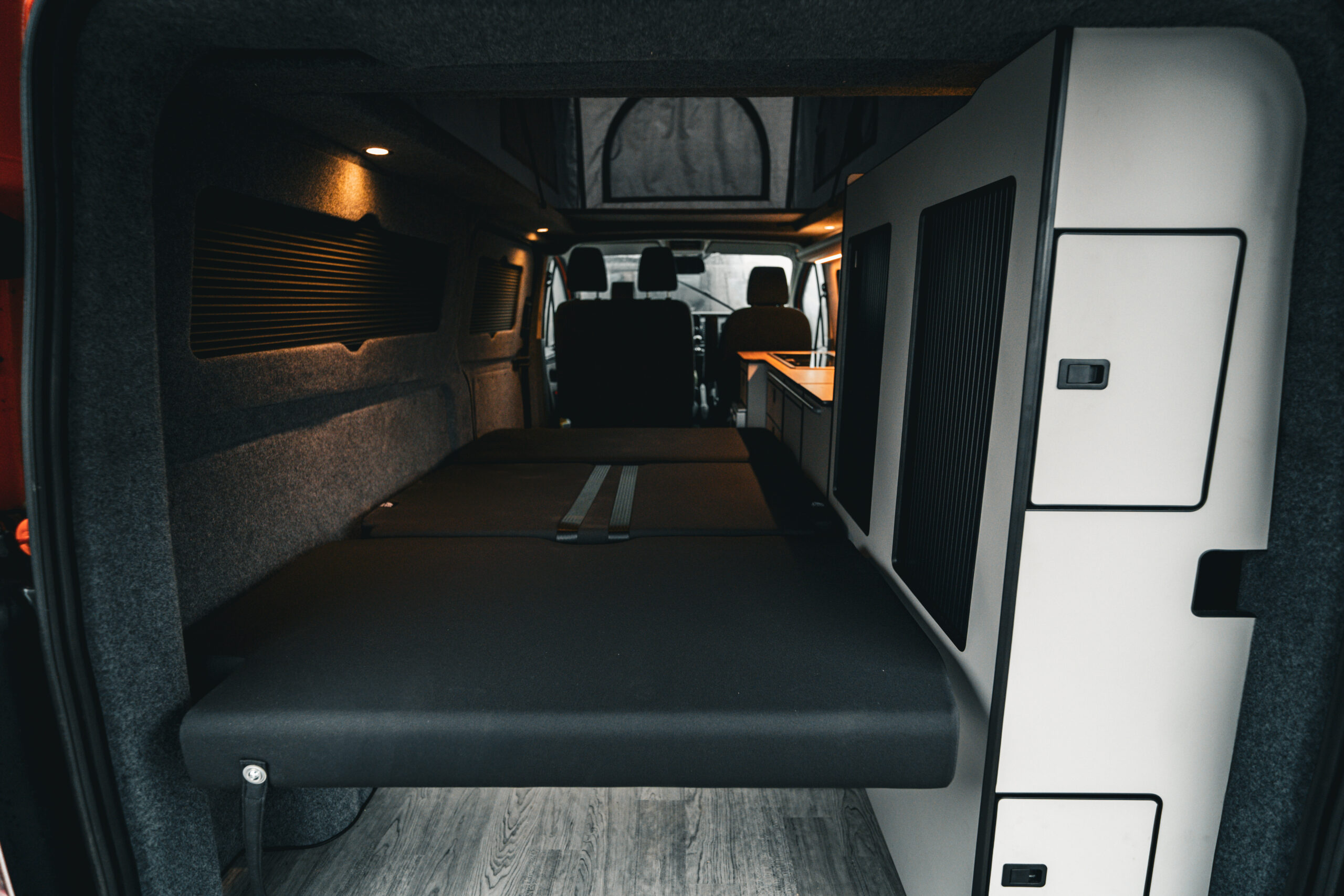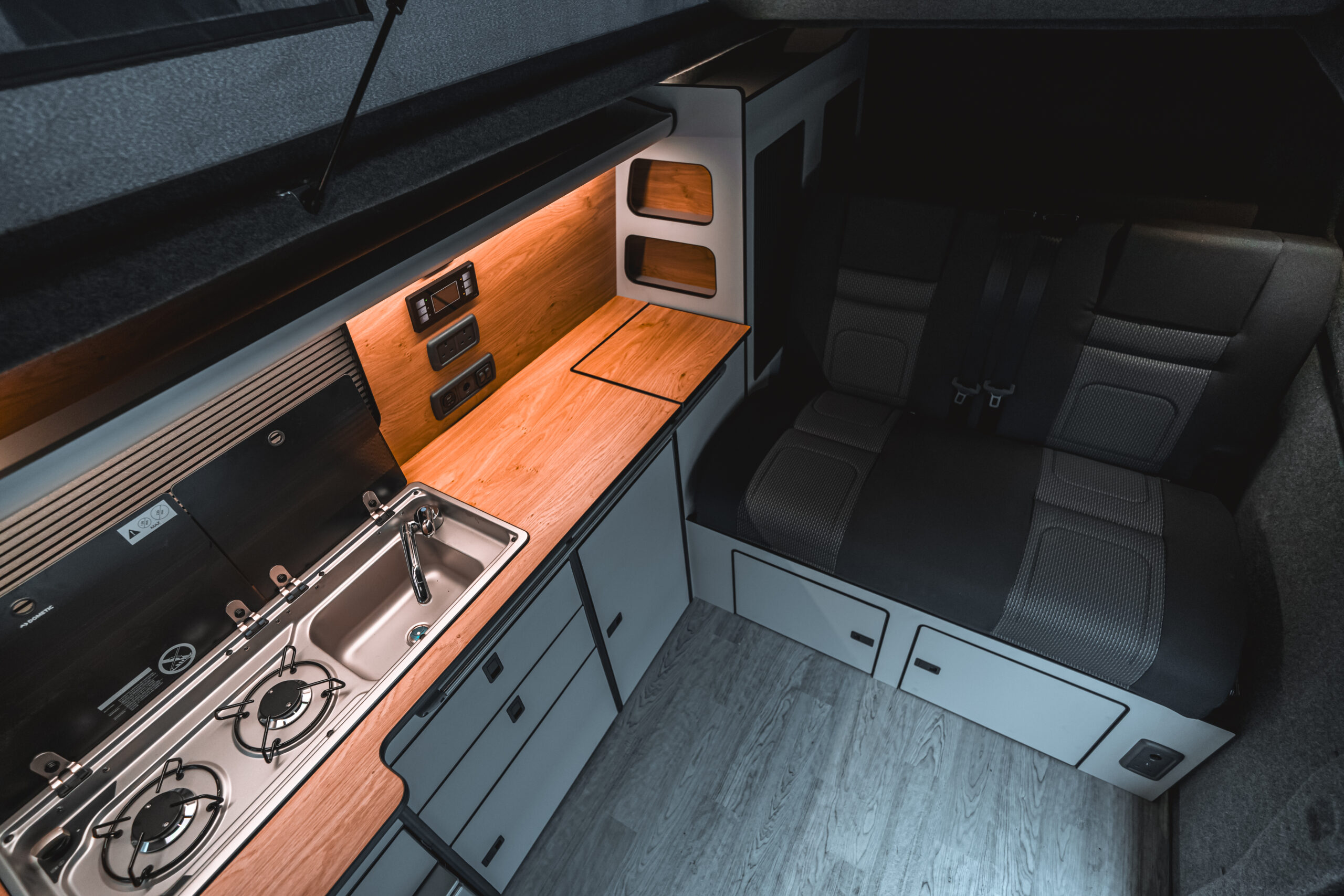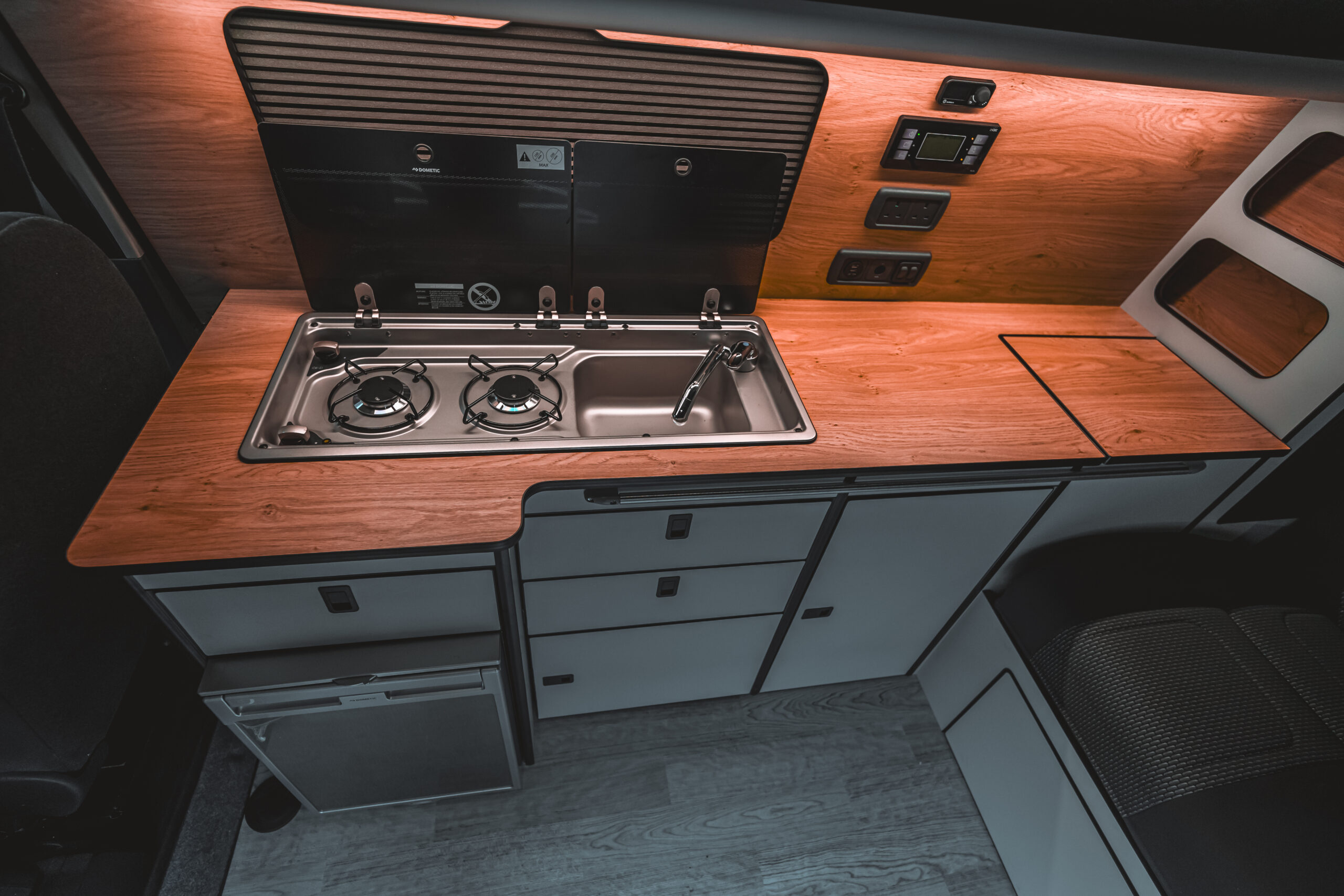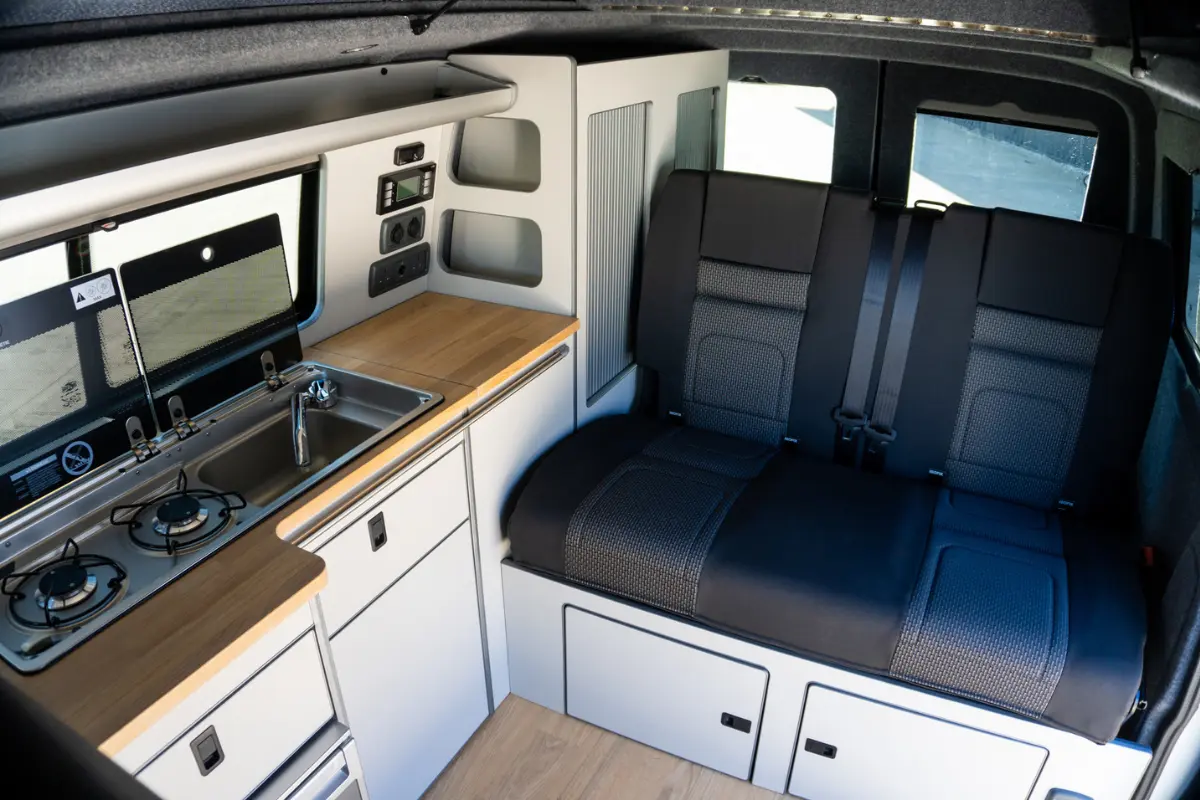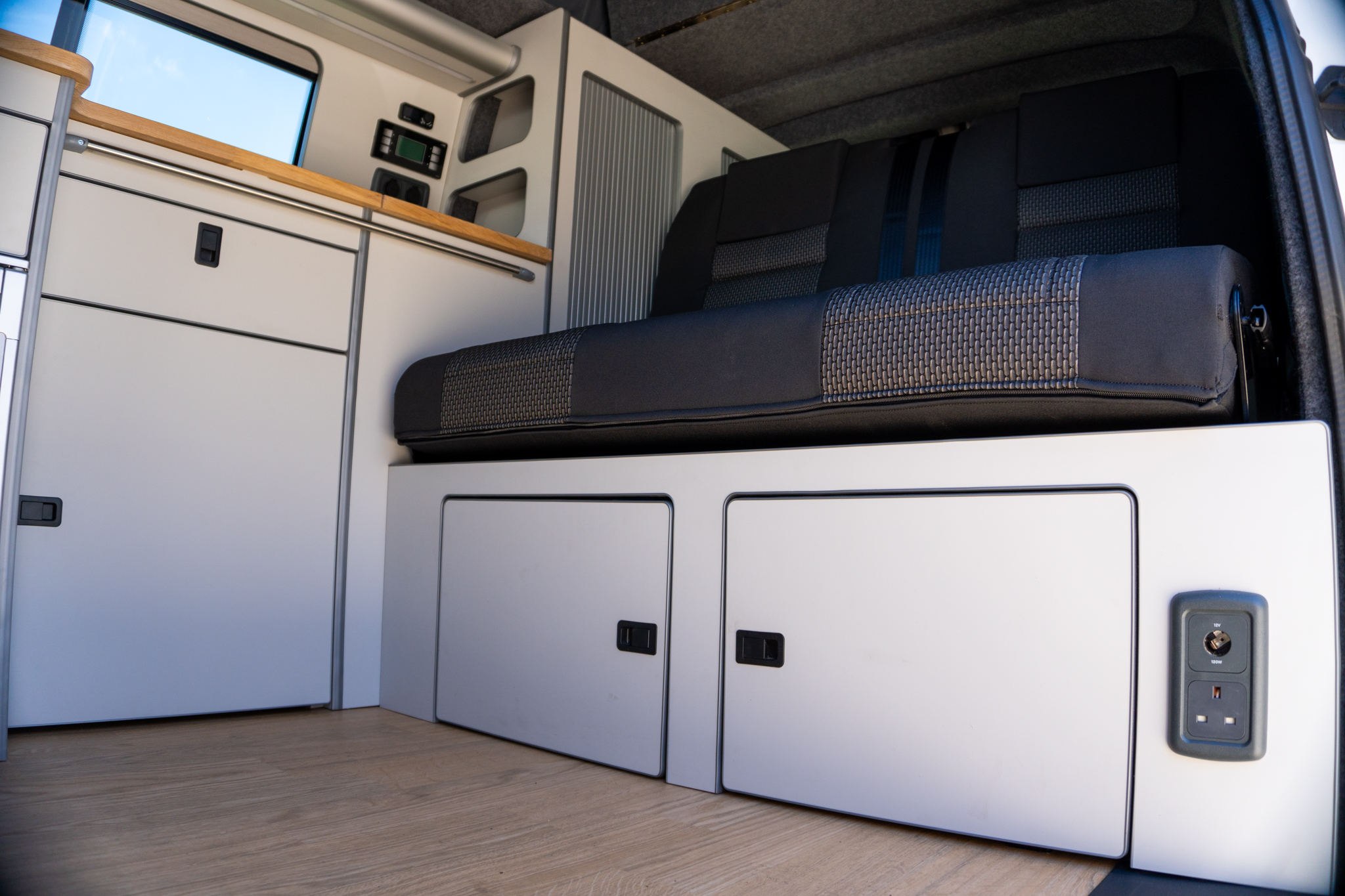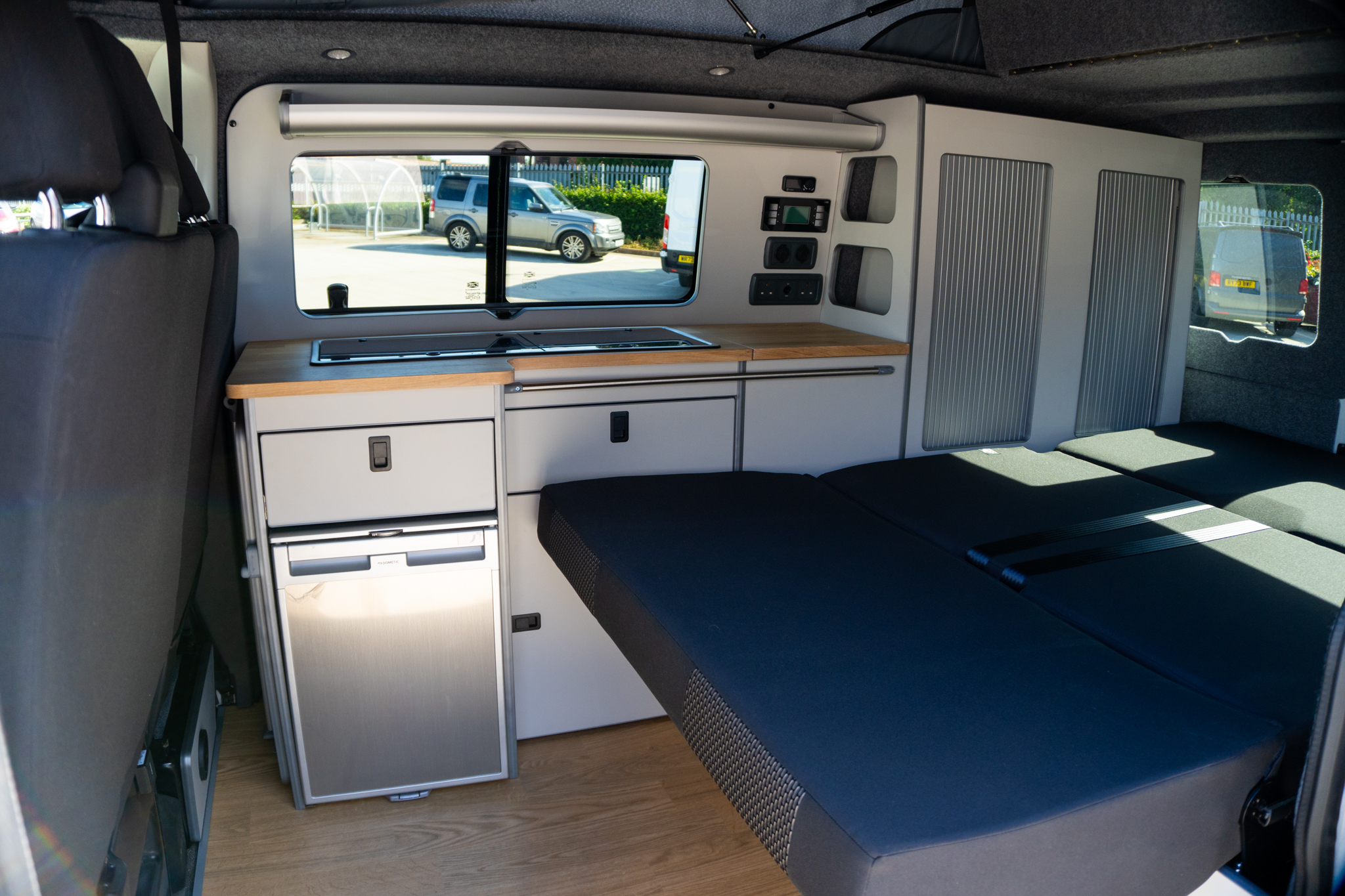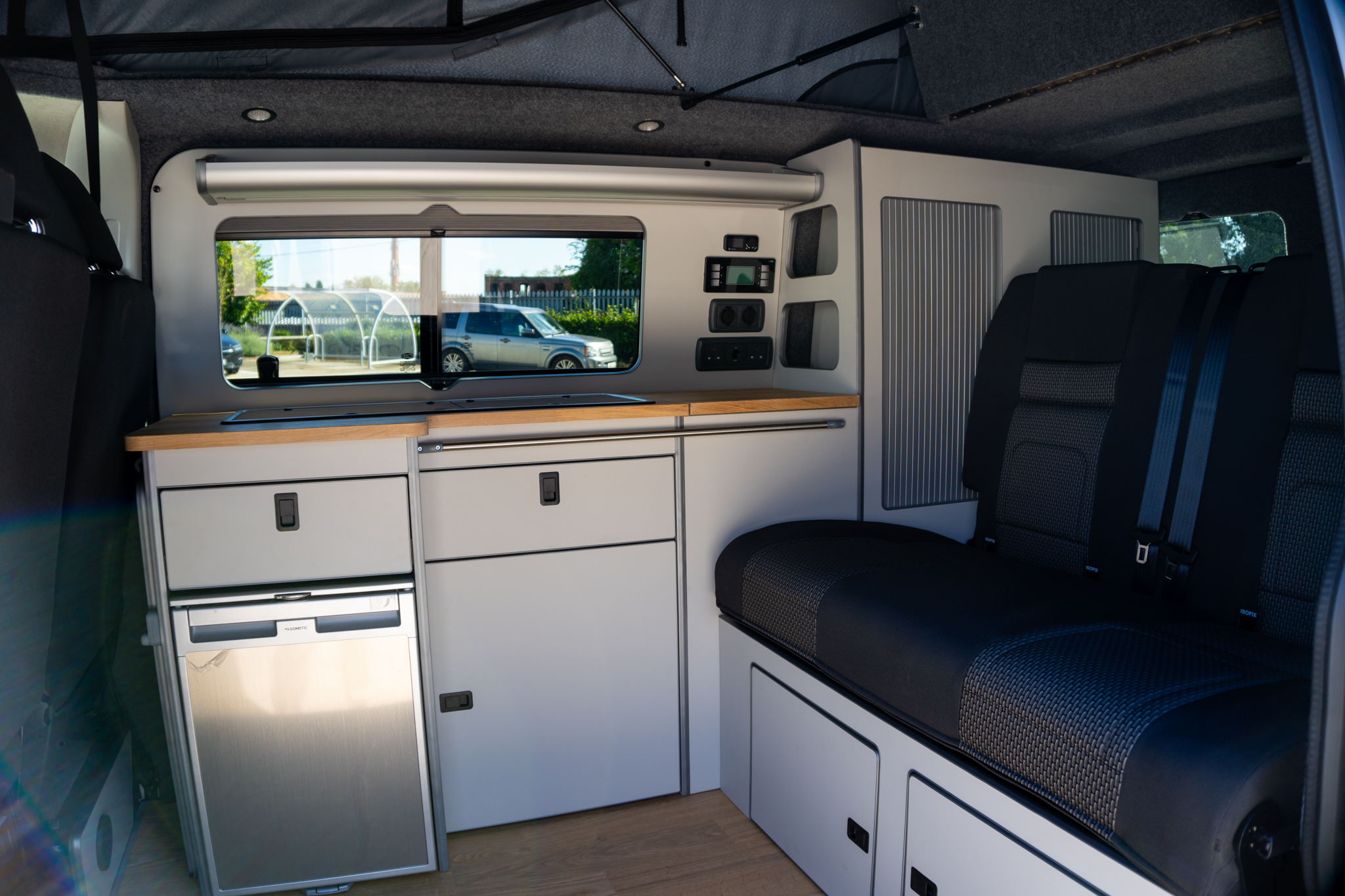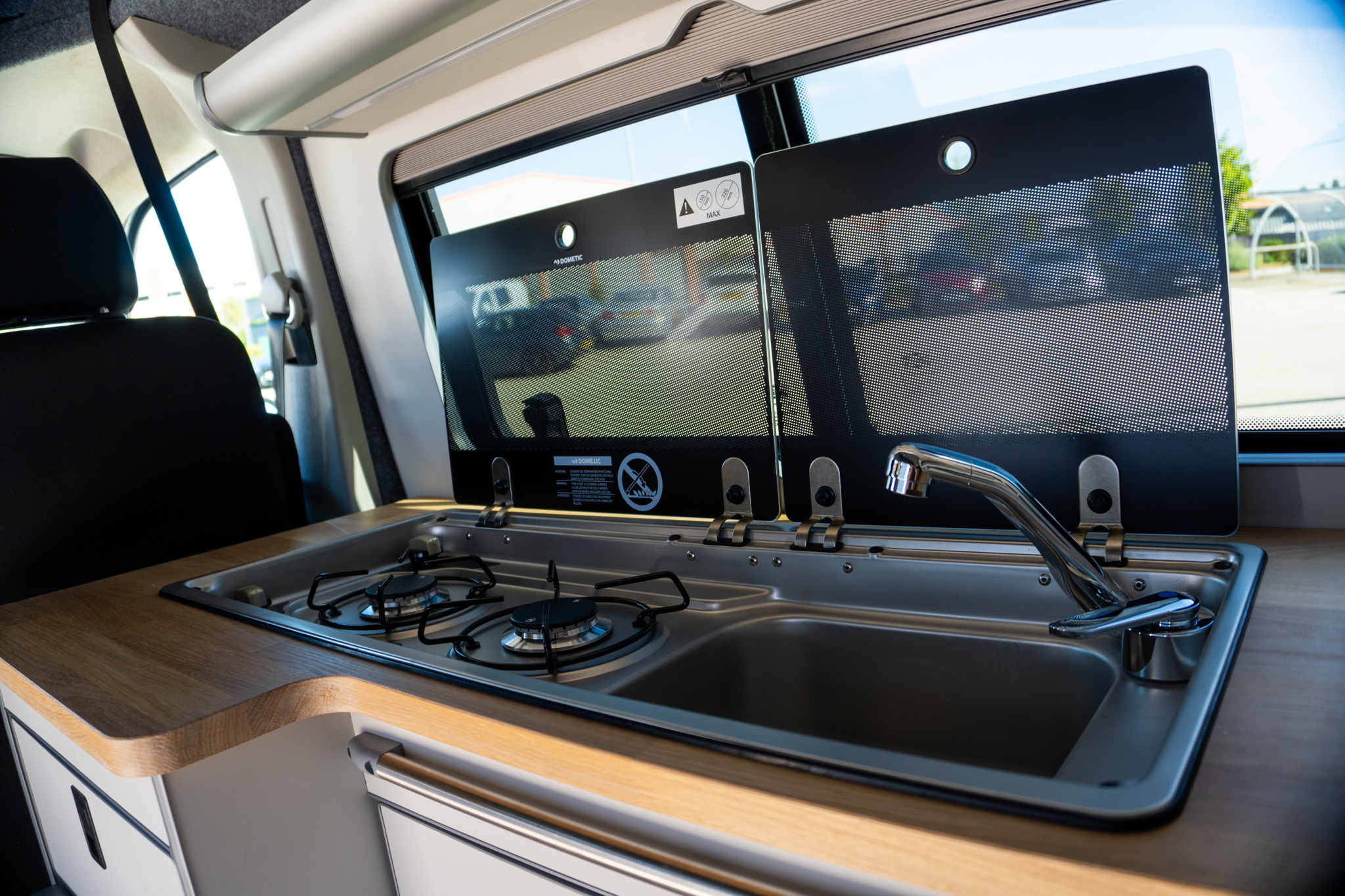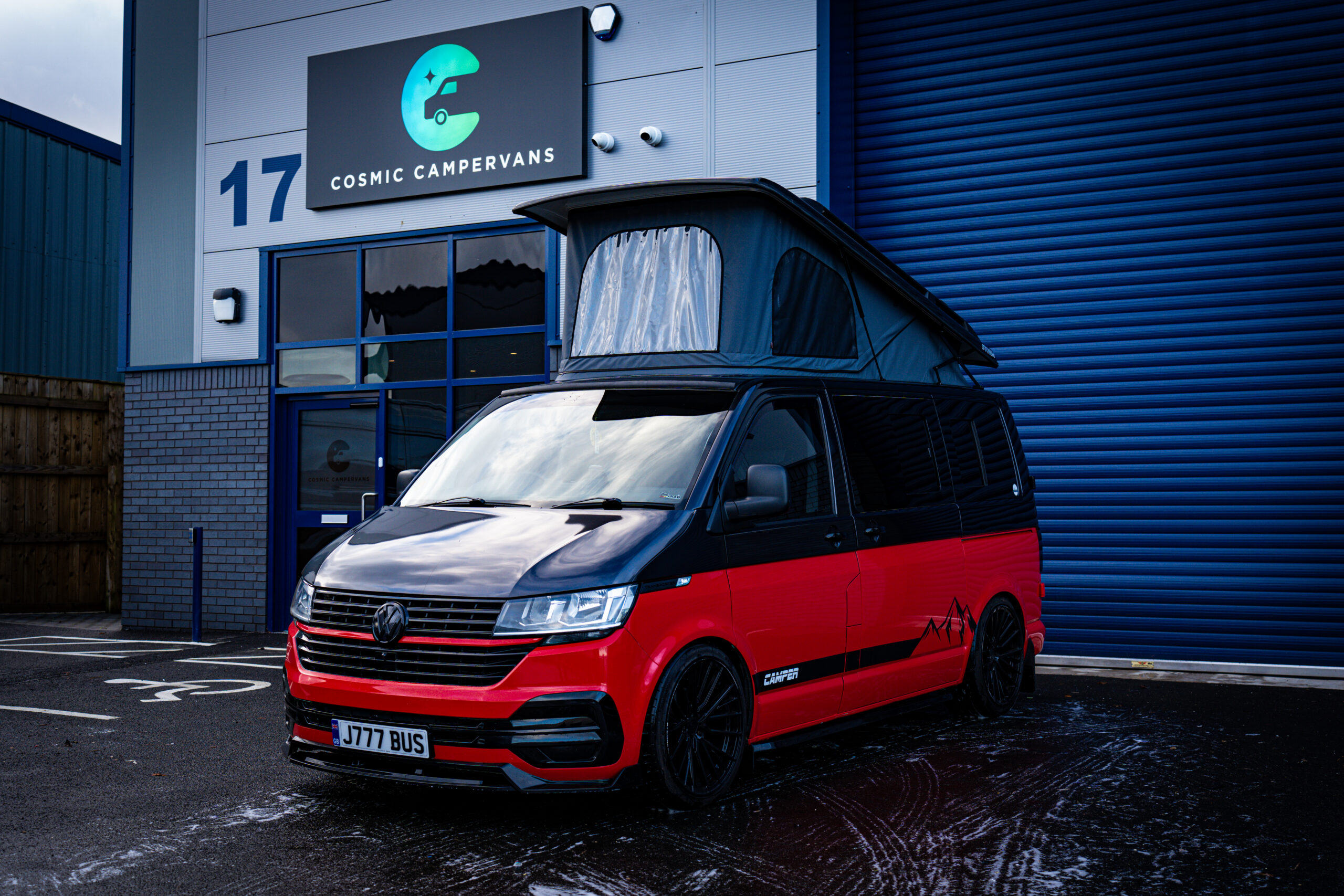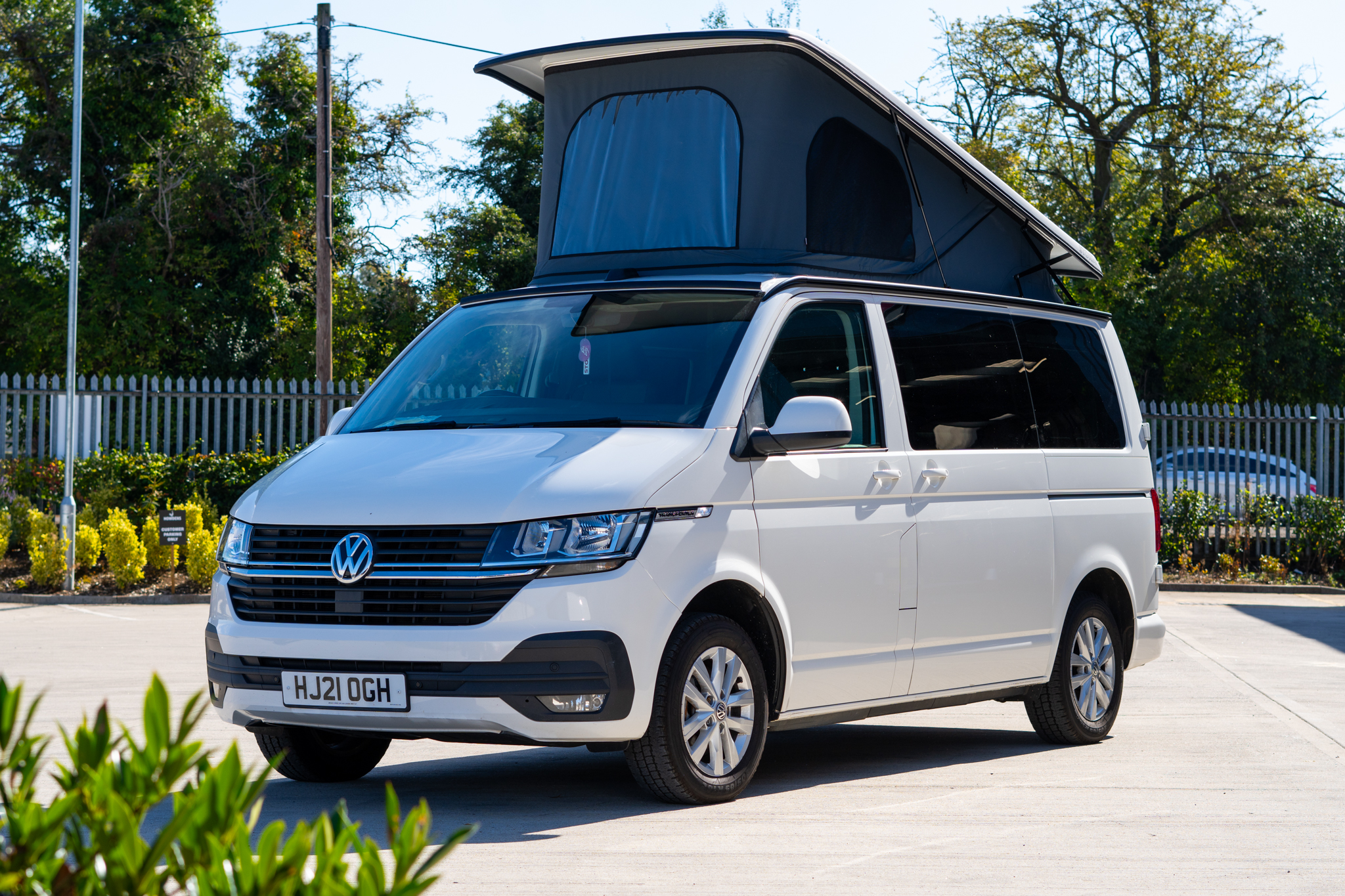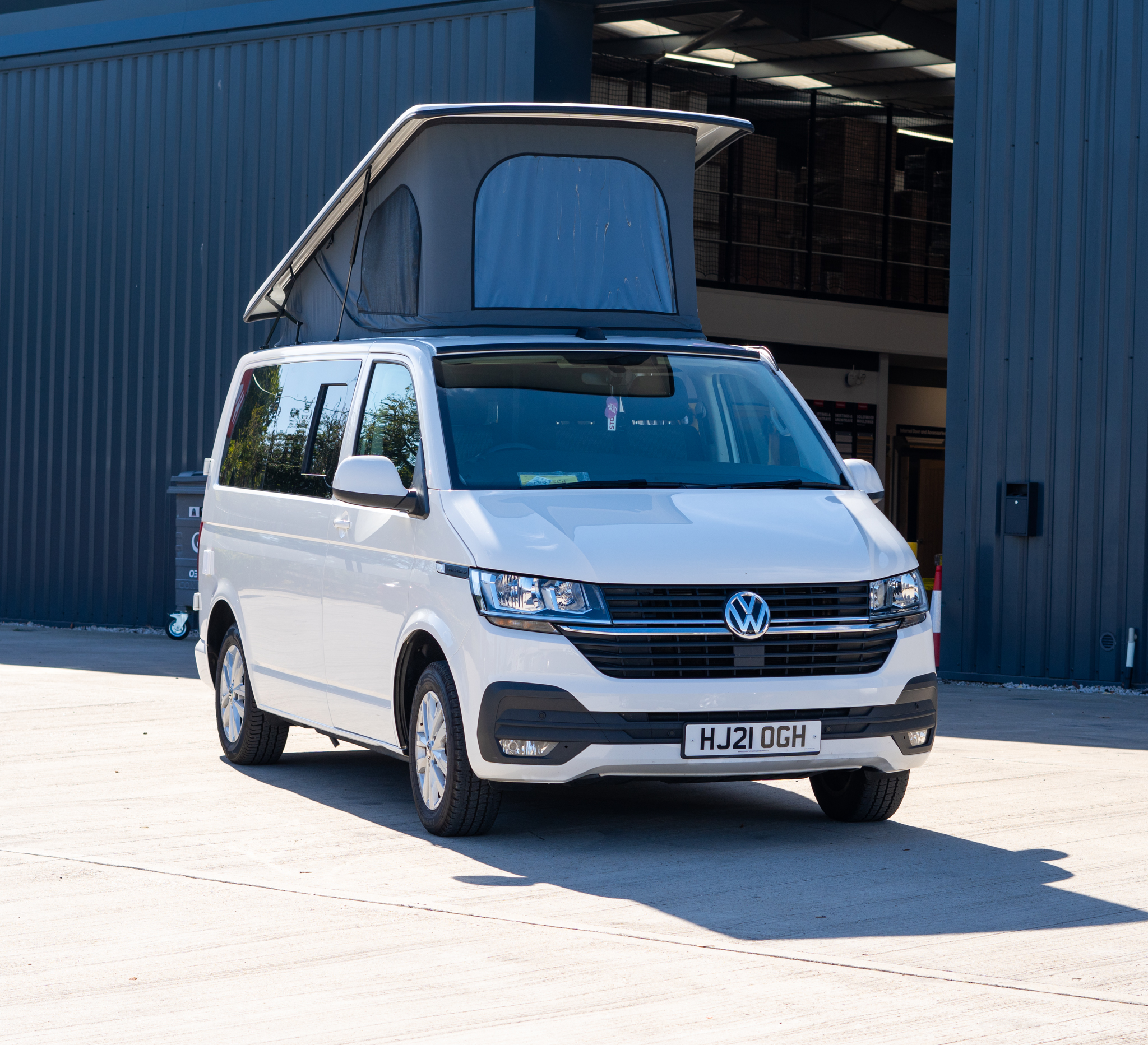Solar Panels vs Generator: Which Is Better For VW Transporter?
Many VW Transporter campervan owners find themselves debating whether to power their trips with solar or generator power.
As the founder of Cosmic Campervans, I’ve spent over 10 years building high-end VW Transporter campervan conversions, and I’ve wrestled with this very question both in the workshop and out on the open road.
I’ve converted countless VW Transporters into dream campers and have personally tested both solar setups and portable generators on long road trips. In this blog, I’ll walk you through what I’ve learned – in plain English, as one fellow van lover to another.
We’ll look at what your campervan power setup really needs, dive into the pros and cons of solar panels vs generators for a VW Transporter, and figure out which option might suit your travel style best.
What Are You Powering?
This is going to sound obvious, but you’d be surprised to know how few people actually ask themselves this question. So, before deciding on solar panels or a generator, it’s worth asking: What are you actually trying to power in your VW Transporter campervan?
For most of my clients (and in my own van), the typical essentials include things like LED lights, a 12V fridge, maybe a diesel heater fan, charging a laptop and phones, and a water pump for the sink.
If you’re into the really comfy setups, you might also have an inverter to run a few kitchen appliances (I’ve seen people blend smoothies in the bush – true story!).
The Case for Solar Panels: The Quiet, Eco-Friendly Choice
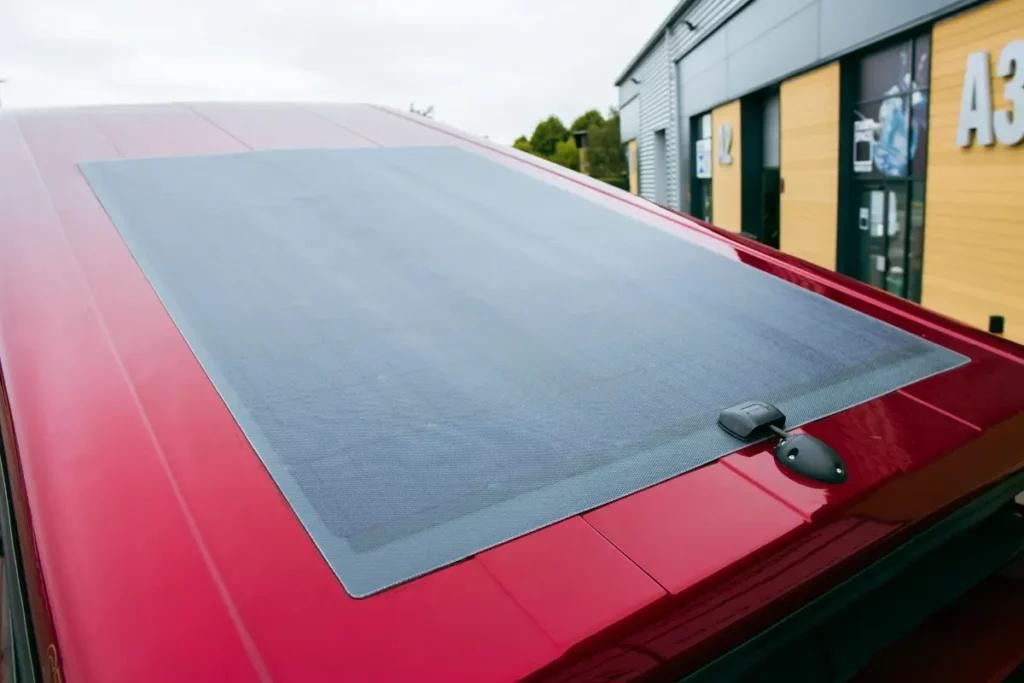
Solar panels are my go-to choice for most VW Transporter campervan builds. Why? They’re the quiet, eco-friendly power source that just works for long-term van life.
How does a solar power set up work?
Simply put, a solar setup uses photovoltaic panels on your roof to convert sunlight into electricity, which a charge controller then feeds into your leisure battery bank.
As long as the sun is shining (and you have a decent battery), you’ve got a steady stream of free power coming in all day. I’ve found that even in partial sun, modern solar panels combined with a good MPPT controller will squeeze in a useful charge.
Pros of solar panels
Solar panels are silent
One of the big reasons I love solar for campervans is that it’s virtually silent. There’s no engine running in the background – your campsite can be as peaceful as a remote beach at sunrise.
Solar panels don’t require upkeep
Solar panels are virtually maintenance-free. Unlike a generator, which has an engine with moving parts that need oil changes, air filters, and spark plugs, a solar setup just sits on your roof and does its thing.
The other great thing about solar is that they don’t require any fuel like a generator does. No need to check fuel levels or make extra trips to the store when you’re running low.
It’s truly a “fit and forget” solution in day-to-day use – sun goes in, power comes out, and you barely have to think about it.
Solar is good for the environment
If sustainability is important to you, solar is the cleanest and greenest way to generate power for your campervan. There are no fuel emissions, no exhaust fumes, and no reliance on fossil fuels.
Over the lifetime of a solar panel, you’ll reduce your carbon footprint significantly compared to using a petrol or diesel generator.
Solar panels are super safe
Unlike a generator, solar power has no risk of carbon monoxide poisoning, fuel spills, or fire hazards. This makes it a much safer option, particularly for those who spend a lot of time sleeping in their van or travelling with children and pets.
Cons of Solar Panels
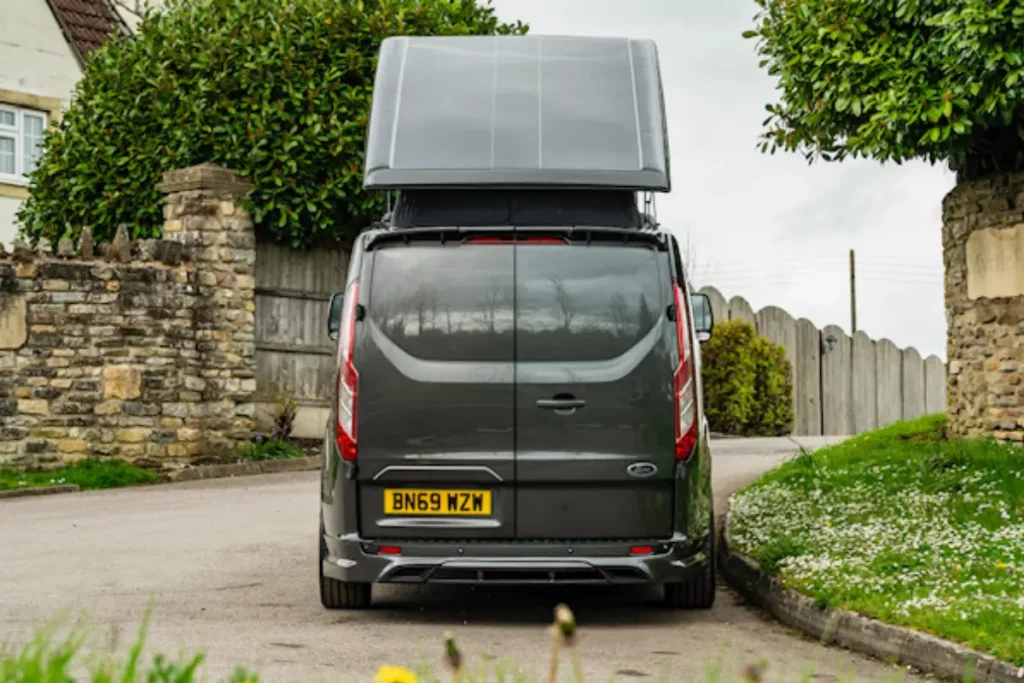
Solar panels need sun (obviously!)
Of course, solar isn’t perfect – it’s at the mercy of the weather. A week of rain in the rainforest will slow down your charging for sure. Winter travel can also be tricky.
During winter UK roadtrips, shorter days and lower sun angles mean you’re getting less charging time each day, even when it’s clear. You’ll still get some power, but not as much as in the summer, so you have to be mindful of your consumption.
But for many, the answer is just to size the battery bigger or occasionally drive to recharge.
Solar panels aren’t effective in the shade
Shading is another issue. If you park up under trees for a few days, your panel won’t get much sunlight, and that can slow down charging significantly.
Unlike a generator, which gives instant power as long as you have fuel, solar needs a clear shot at the sun to be effective. Some people solve this by using a portable solar panel they can move around to catch the best light, but that does mean extra setup every time you stop.
VW Transporter roofs can only fit one solar panel
Roof space is a challenge because a VW Transporter’s roof isn’t massive. While you can fit a decent-sized panel up there, it’s not like a motorhome where you can plaster the whole top with solar.
Solar panels are expensive
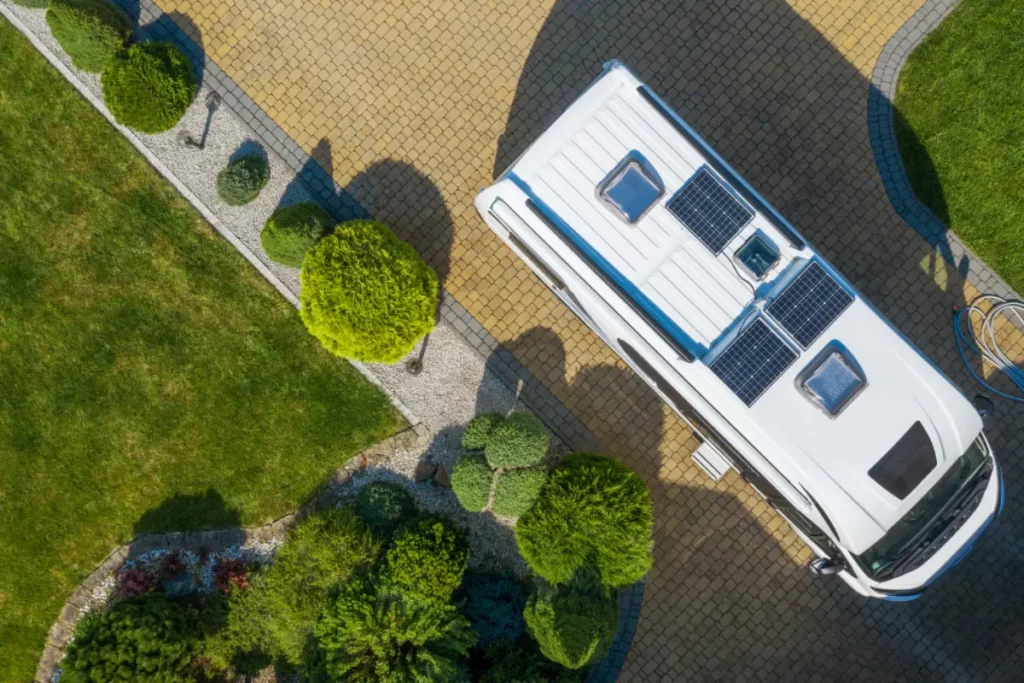
Then there’s the upfront cost. A good solar setup isn’t cheap. You’re paying for the panel, the MPPT controller, wiring, and installation.
Over time, it pays for itself because the energy is free, but the initial cost can be a consideration, especially if you’re on a tight budget for your VW camper conversion.
Solar panels can get damaged during storms
Lastly, solar panels are much more exposed to damage from high winds, debris and hail. Sometimes, you’ll get unlucky and be caught in a storm while driving or camping. Unlike a generator, your solar panels are hard to protect during wild weather.
While the solar panels we fit at Cosmic Campervans are securely mounted and designed to handle rough conditions, extreme wind and debris can still pose a risk.
How we fit Solar panels at Cosmic Campervans
At Cosmic Campervans, we pride ourselves on using top-notch components for our campervan solar installations. My team and I fit a top quality semi flexible ETFE Panel on the roof of your VW Transporter.
ETFE is a special kind of durable coating that makes the panel tough and long-lasting – it’s highly resistant to heat, corrosion, and UV rays, and even has self-cleaning properties so you get optimal performance without fuss.
In other words, our panels are built to handle many years of VW Transporter adventures. That’s why you’ll also get a 5 year warranty on solar panels fitted by my team and I.
To make sure you get the most from that solar panel, we pair it with a Victron SmartSolar Bluetooth MPPT Controller.
This handy feature has built-in Bluetooth connectivity, meaning you can monitor your solar charging on your smartphone via an app. No more guessing whether your panel is working; you can see it in real time.
In my experience, a well-sized solar panel (or panels) combined with a good battery bank will meet the needs of most campervan travelers.
It’s an ideal solution for those who plan to spend a lot of time off-grid or who simply want the convenience of free energy and zero noise at all times. Next, let’s look at the other side of the coin: generators.
Power Your Adventure with Solar Panels
Discover how solar panels can keep your campervan powered up on the go.
Generators: More Power, More Noise
Now, what about generators? I’ll be honest, I don’t install a lot of generators in VW Transporter campervans, because most people don’t end up needing them. But there are scenarios where a generator makes sense, and I’ve helped a few clients incorporate them.
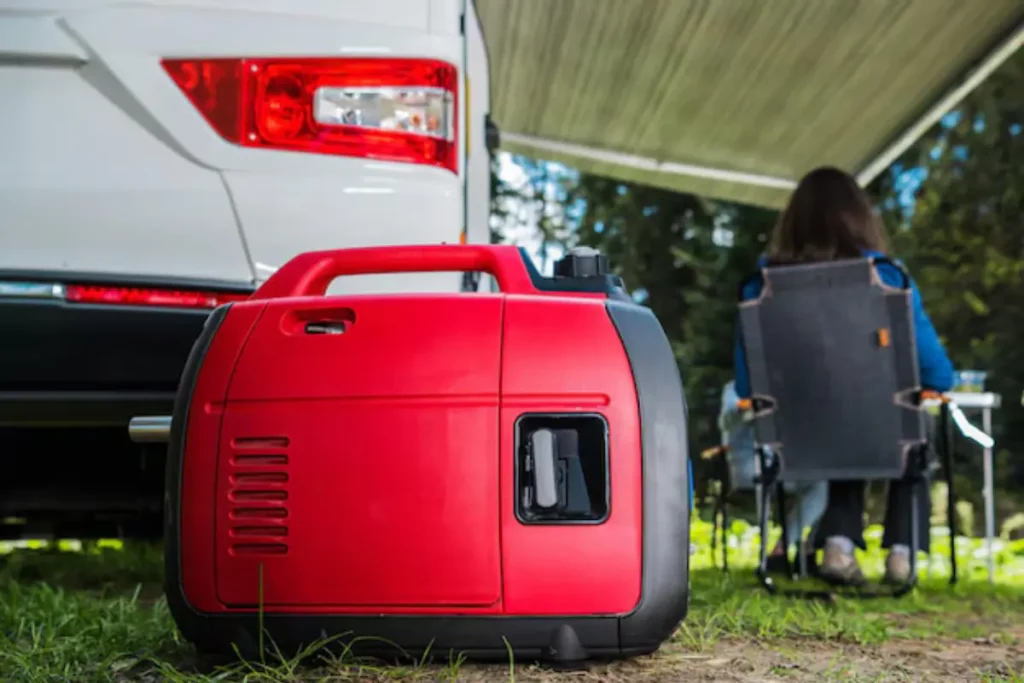
How does a generator work?
A generator is basically a small engine that produces electrical power by burning fuel (petrol, diesel, or propane, depending on the type). Think of it as a tiny power plant you carry with you.
Pros of a generator
The big advantage here is brute force power output – a generator can provide a lot of wattage on demand, which is great for running high-energy appliances or tools.
Unlike solar, it doesn’t matter if it’s day or night, sunny or stormy; as long as you have fuel, a generator will churn out electricity. This makes generators a reliable backup in bad weather or during winter in low-sunlight regions when solar might not keep up.
For example, I did a conversion for two clients that wanted their VW T6 converted for remote winter camping across Europe. They were heading to northern parts that see only a few hours of sunlight a day, so solar panels wouldn’t have made sense for them.
A generator was their safety net to keep his heater and fridge running when the solar input just wasn’t there. So, generators can be a useful solution for high power demands or challenging conditions like those.
Cons of a generator
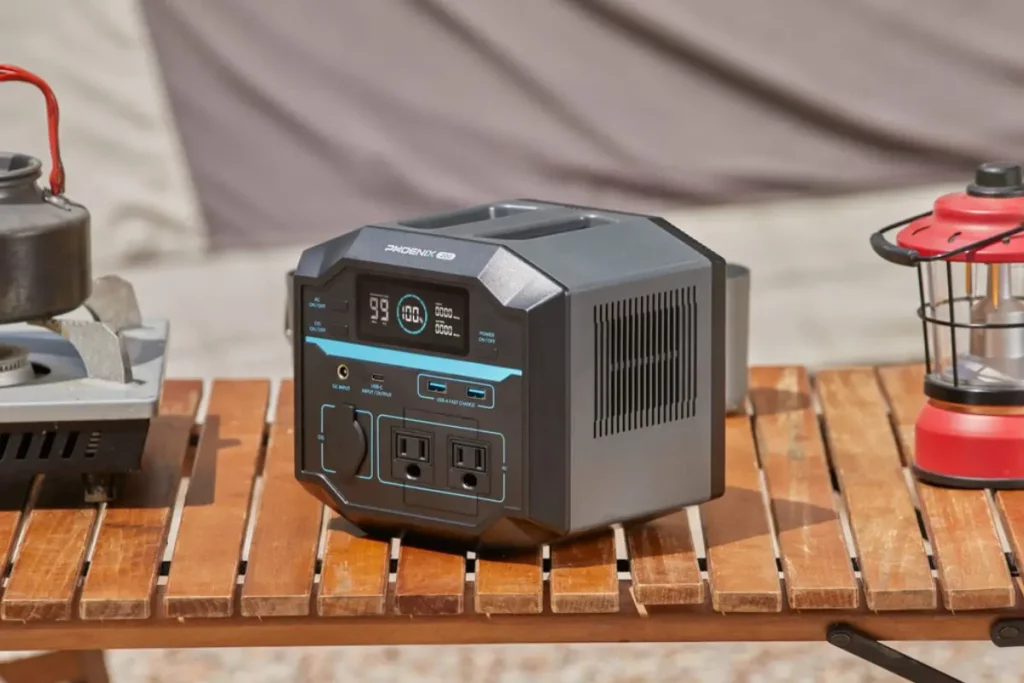
Generators are noisy
The most obvious downside is the noise – even the quiet “suitcase” inverter generators hum noticeably. In the tranquility of nature, that drone can get on your nerves (and your campsite neighbors’ nerves too).
Some camp areas or parks even have rules restricting generator use to certain hours because of noise. You generally wouldn’t run a generator all night long, for both noise and fuel reasons.
Generators require upkeep
In contrast to the set-and-forget solar, generators also require regular maintenance and fuel. You’ll need to carry petrol or diesel with you, and do upkeep like oil changes, filter replacements, and spark plug checks to keep the generator healthy.
Generators aren’t as eco-friendly or safe
Let’s not forget the environmental impact of running a generator. Every time you switch it on, it burns fuel and produces exhaust emissions. If part of the appeal of van life for you is reducing your footprint and living more sustainably, relying on a generator might not align with your values.
Let’s not forget about the safety aspect of fumes – you have to be mindful of where the exhaust is blowing (nobody wants to breathe in or risk carbon monoxide around the van).
Generators require storage space
Space is always at a premium in a campervan, and a generator is one more bulky item to store and transport.
Unlike a solar panel, which is neatly mounted on your van’s roof and operates without taking up any living space, generators (and the fuel needed to power it!) need a dedicated spot inside your van or an external storage box.
If you already struggle to fit all your gear, adding a generator into the mix can be frustrating.
Of course, if you’re struggling with storage space, I’d recommend installing a pop top roof because that can really free up some space in the main cabin. If you’d like to learn more about this upgrade, I also have a blog on the benefits of a pop top roof for VW Transporter camper vans.
To sum it up, a generator can deliver reliable, high wattage power on demand, which is great for energy-intensive needs or when solar isn’t possible.
But you pay for that power in noise, maintenance, and fuel. I usually joke that a generator will charge your batteries and run your microwave, but it might also drive you to noise-cancelling headphones!
Want to Make Van Camping Easier?
Upgrade your VW Transporter with plumbing, carpeting and heating.
My Recommendation
So, solar vs generator – which one is the right choice for your VW Transporter campervan adventure? The answer depends on your lifestyle and needs, and as someone who’s seen all kinds of van setups, here’s my take to help you decide.
Solar panels are suitable for the typical power requirements of a VW Transporter camper: running your fridge, lights, fan and charging devices – all without having to fire up any engine. For most vanlifers, solar will keep you going indefinitely as long as you manage your power use.
The freedom of not worrying about fuel or noise is a huge plus. I’d say a large majority of the VW Transporter conversions I do these days include solar, and the owners are happy with that choice long-term.
When I’d suggest a generator
There are a few specific use cases that a generator might be necessary.
Consider your specific power consumption. Do you have any appliances or needs that draw serious power? You’ll likely need a generator.
A few examples: running a rooftop air conditioner unit (some folks do install these on Transporters), using a microwave or electric kettle daily, or powering heavy tools or equipment for work.
Also, consider your trip conditions. Will you mostly travel in summer, or are you planning to do a lot of winter camping?
If you regularly find yourself needing more juice than a solar setup can provide (especially in winter months or shaded environments), a generator might be a necessary addition for you.
It could be your backup for those extended cloudy/rainy periods or a primary source if you simply must have the convenience of high-watt appliances off-grid. Just be ready to handle the extra logistics (fuel, noise management, servicing the unit).
Finally, consider how often you’ll actually camp off-grid. Sometimes, clients feel like they need a generator when in reality, they’ll spend most of their time at powered campsites where they can make use of their mains hook-up to keep everything running.
Final thoughts
In my experience, most VW Transporter owners will be perfectly served by a good solar setup combined with a decent battery bank. This honestly covers 90% of use-cases without the need for a generator.
It’s only that other 10% (extreme power use or very specific weather circumstances) where a generator becomes worth the trade-offs.
When in doubt, I usually advise starting with solar (we can always wire your system to accept shore power or a generator input just in case) and see if it meets your needs. You can always add a generator later if you truly require one, but many find they never do.
I hope this comparison has helped clear up the solar vs generator dilemma. Ultimately, the choice comes down to your priorities: peace and quiet and free sun-powered energy, or on-demand power with some noise and upkeep.
If you’re still unsure or have questions about what you’d need for your campervan power setup, feel free to reach out. I’m always happy to talk shop about vans and help you figure out the best solution.
And hey, if you’re not the DIY type or you need the whole package sorted, remember that me and my team at Cosmic Campervans offer a full VW Transporter conversion package – everything from power to cabinetry – to get your VW Transporter conversion fully equipped and road-trip-ready.

